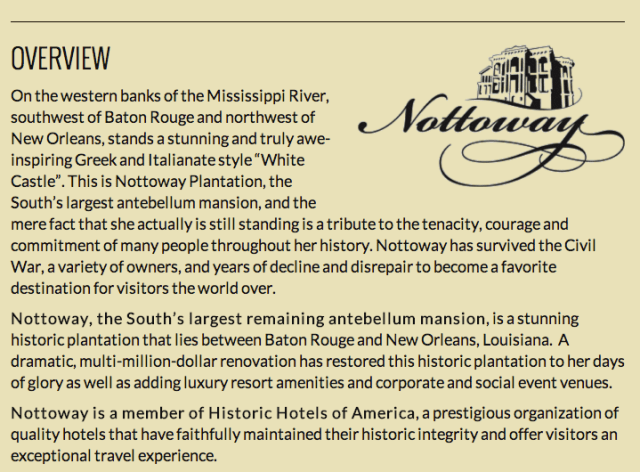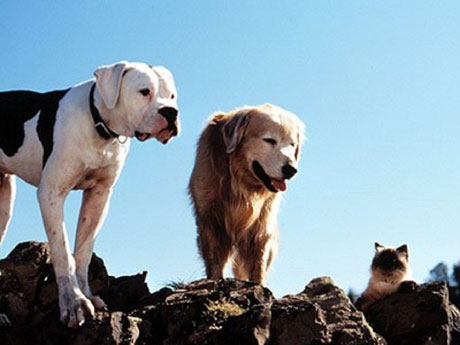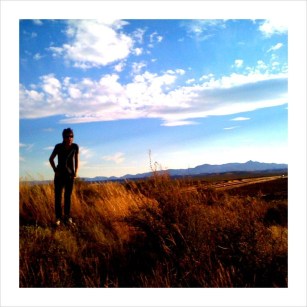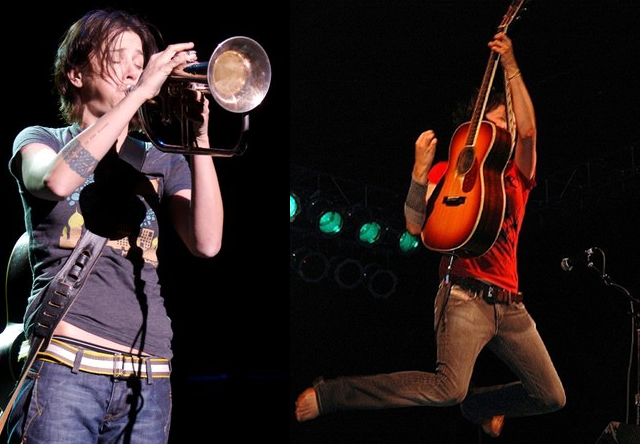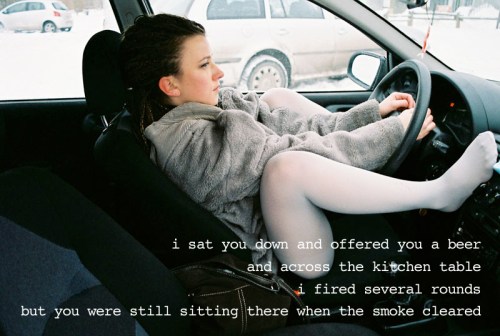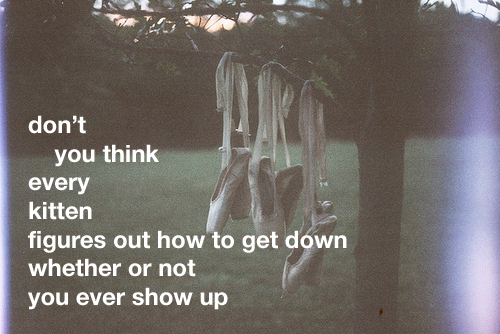When You’re Black and Queer but Masquerading as Straight While Listening to the Music of White Lesbians
“And I try. OH MY GOD do I try? I try all the time…in this INSTITUTION!”
As I recently cleaned my apartment whilst nearly bringing myself to tears with my own rendition of “What’s Up?” (we’re talking full voice emoting, in the apartment by MYSELF), I paused mid-sweep with the realization that I hadn’t fooled anyone. Family, friends, my Brooklyn neighbors all knew, in fact, what was up with me (see what I did there?) before I’d fully admitted it to myself. This Four Non-Blondes anthem was only one of several favorite diddies by white lesbians I was prepared to belt out that morning.
A quick Spotify check confirmed my suspicion that I’d been musically signaling my queerness since the 90s. Indeed, I was reminded that Ani DiFranco had only been playing a few minutes before and that Melissa Etheridge was second in line in the queue, with Tracy Chapman* also thrown in there. I racked my brain: how could I not have followed my own breadcrumb trail? And why didn’t anyone tell me?! I could have been having so much lezzie sex way sooner!
I’m a baby queer, having only come out to many family and friends last year, in my thirties. In many ways, though, I’ve been coming out in search of community since the days of yore, when I was but a wee queerdo in a sleepy Memphis suburb. Early on branded as “weird” and not particularly adherent to certain southern belle conventions, my taste in music set me that much further apart from my contemporaries. Memphis remains a very polarizing place and in the ‘90s, the radio only offered the best of sonic extremes: pop, hip-hop, whatever my parents listened to (all generally produced before 1985) and gospel. So it’s not really a surprise that my entire childhood vibe could easily be referred to as coffee shop music on an episode of Felicity. I wanted folk, I wanted soft rock, essentially anything Delilah would play.
In reflecting on my younger days, I’ve highlighted the five sapphic singers whose intense presence in my life was my queer slip showing, moments where everybody in my life knew, sometimes even before I did.
Melissa Etheridge
“I know you’re home / You left your light on / You know I’m here / The night is thin”
Picture tiny Jehannie in grade school. It’s the mid- nineties and she’s in the passenger’s side of her mother’s car belting out “Come to My Window,” by the only lesbian palatable enough to hit those bible-thumping airwaves. She demands her mother play the song again and again, until her mother reminds her radios are not tape players. But still! Melissa Etheridge’s raspy voice, her powerful songs of yearning continue to hit me in a soft spot to this day. I sang with the longing of a new crush in the body of an eight year old. But let’s just get on the same page now and declare “I Want to Come Over” as the true gem in her crown. The naked desire of the chorus: I want to come over/to hell with the consequence/you told me you love me/that’s all I believe! I MEAN.
Sophie B. Hawkins
“Till you call my name/ And it sounds like church bells /Or the whistle of a train/On a summer evening/I’ll run to meet you/Barefoot, barely breathing”
My commitment to the ‘90s remained fierce well into high school in the 2000s. Senior year I ordered a multi-disc CD set called Forever ‘90s or something to that effect. The second song was Sophie the songstress’ “As I Lay Me Down.” It was the lesbianic (technically omnisexual) siren call I needed and that I promptly put on repeat. We’re talking months of this whisper song in my car, in my house, as homework mood music. I definitely made ill-fated attempts at both poetry and songwriting to this song. I kind of didn’t understand the lyrics but knew, I too was capable of this type of love.
Ani DiFranco
“Come here/ stand in front of the light/Stand still/So I can see your silhouette”
I’m aware Ani is not a lesbian and is a problematic fave, but we’re not talking contemporary Ani. We’re talking mid-aughts Ani! And where would she be without her white lesbian fan base? Case in point, during freshman year of college my white lesbian roommate’s single act of generosity was copying 19 of her albums to my computer. Remember when you could do that? It was a simpler time. I remember it like it was yesterday: returning to the dorm to hear “Alex” playing this music that seemed to lovingly stroke my cheek and beckon me into its warm embrace with a knowing glance. I fell hard, made her music my studying soundtrack. I had a “friend” actually say, “you know she’s gay right?” To which I replied “Love is love, Beth!” [Her name wasn’t Beth but she was white so, you know.]
*Tracy Chapman
“But you can say baby / Baby can I hold you tonight? / Maybe if I told you the right words / Oooh at the right time / You’d be mine”
So Tracy Chapman is obviously not white. But she has to make the list because she was such a staple of my ‘‘90s-era listening and because she is TRACY MUTHAFUCKIN CHAPMAN. Again, she is very much a Black lesbian and one of our patron saints, but she is nonetheless peak white lesbian listening. Back in the day was a regular on Delilah and other folk-adjacent stations. While those days were more “Fast Car” and “Give Me One Reason,” who hasn’t openly wept to “Baby Can I Hold You?” Who, I ask?!
This song marks the era of being in (unarticulated) love with my best friend at the time, and her pretending like it wasn’t mutual. While lying in bed, fully clothed and discussing our plans to co-own the Felicity coffee house, we played “Baby Can I Hold You?” and she’d suggest that maybe I was a lesbian. Which I totally played off until, you know, we made out.
Brandi Carlile
“I crossed all the lines, and I broke all the rules / But, baby, I broke them all for you”
Perhaps the most obvious moment of my inability to play it straight was during a powerful obsession with the relationship of Arizona Robbins and Callie Torres. I’d become a half-hearted fan of Grey’s Anatomy before suddenly rededicating myself to the show to watch one of the hottest couples on screen in a long time. Then the musical episode happened and I refuse to believe that I was the only one whose eyes glazed over at Sara Ramírez singing “The Story” by Brandi Carlile. DEAR GOD SO HAAAWWWT! It was almost too much. Nay, it was just enough. At this point I’d already done a soft launch of my queerness and was just yearning for the right cutie to come along and give me literally any reason to belt out this song to her.
Thankfully in the years since, I have *mostly* recovered from Callie and Arizona’s breakup, but have not even remotely tempered the urge to sing.
Ani DiFranco Has a Song From 20 Years Ago That Works For This Moment
Chances are pretty good that if you are a queer/feminist person who came of age in the 90s or early 00s, you’ve heard the name Ani DiFranco. Maybe you heard someone do a warbly cover of one of her songs at an open mic night somewhere and looked her up. Maybe her name makes you think, “eh, I think my ex was into her, not sure.” Or maybe you know all her lyrics by heart.
Ani DiFranco has been putting out albums since before I started middle school, and I’m 34 years old. At 18, she started Righteous Babe Records, which went on to release work by Ani herself as well as Andrew Bird, Sekou Sundiata, Utah Phillips and Nona Hendryx, among others. While a lot has changed since the days when she was making her way from cult underground darling to ballyhooed indie enigma, she was a bisexual icon when it wasn’t cool to be one; outspoken about eschewing labels, and writing killer songs about love and heartbreak that could (then and now) rip your heart right out of your chest and feed it back to you. I personally figured out that I was queer because some of her early music gave me the language and tools to articulate and admit it to myself.
Over the years, she has used her music and poetry to talk about reproductive rights, gun control, capital punishment and the criminal justice system, racism, labor rights, immigration, war, capitalism, feminism, and on and on. Her music has played a role in elevating the political consciousness of a whole swath of people whose privilege and socioeconomic status otherwise sheltered them from having to engage with or even be aware of such things.
In 2010, we launched the Ani DiFranco Appreciation Club, a series of posts about our beloved icon and her intense influence on our lives, but then took a break from it that we never un-broke. Still, life is a never-ending educational process and it was always a goal of the Club to one day interview Ani herself, so when Ani’s camp reached out to us last week, offering the opportunity to chat with Ani about activism, politics, and what she’s up to now in the wake of her TWENTIETH studio release, Binary — we had to say yes. The occasion for this interview is that this weekend she’ll be performing at Babefest in Provincetown alongside Andrea Gibson, Rae Sanni, and Gracie and Rachel, which looks like a great lineup for a good time.
This interview has been edited for clarity and length.
Autostraddle: I’ve thought to myself more than once since the election, “I wonder how Ani DiFranco is feeling right now.” I don’t even know how to even begin talking to you about our current situation! Though you’ve mentioned that you wrote your new album Binary before the election, this is your first album in a while that you’re really kind of digging back into political stuff. So I guess my first question is “What did you do on November 9th?”
Ani DiFranco: [laughs] Well I mean, I rode the same roller coaster as the rest of us for a good long while. I got nauseous, I threw up, I fell to my knees. But I’ve got to say, I think you called the right person today because I feel very hopeful. And I don’t mean to sound candy-assed when I say that, like I don’t understand how much is at stake here. But as someone who’s been politically outspoken for many decades, I feel less alone than I have ever felt… I came up in the 80s [when] not only were folk music and political music uncool, but just politics in general, progressive ideas. And it’s like we’re still reeling from that sort of conservative mindmeld, the corporate overthrow of our politics, of our country. But now, everywhere I turn, people are getting up off of whatever they’ve been sitting on and putting their asses on the line, in one way or another. It’s amazing to see. In the arena of football, one of the things that people pay the most attention to of anything, people are taking sides, people are getting on board to express political dissent. I think that [with] this last election and the incredibly swift slide into political and social regression, this tipping point that we’re on now where our democracy could end up as a dictatorship if we’re not careful, I feel like fascism has come to call, it’s our turn, and this is pushing people in a way that, in my lifetime—I just turned 47—I ain’t never seen before. I feel that there is a great, great possibility in that, a great hope in that. I was doing a benefit the other night for refugees and this hip-hop artist who was singing, she was like “You know, these times are crazy, things are hard, but I just want you to know, I will go with you. I want everybody to turn to the people around them and look them in the eye and say, I will go with you.” And we all did that and it was just like, yes. I have chills right now just thinking of looking in strangers’ eyes and going “We will get through this together. I will go with you. I’ll stand behind you, you stand behind me, and we’re gonna show them what this country really is.” I think that that’s what’s really happening. I truly believe that the real and more lasting effect of this terrible time is that we will be a better country.
AS: Looking at everything happening in the world right now, it can be so easy to turn to despair. How do you dig deep and find that place of positivity and hopefulness? Where does it come from?
AD: It comes from leaving my house and going and talking to people. I’ve been having all of these conversations lately about how [to] affect change, and online activism, and this and that. And for me it’s all about going and making a new relationship. It’s about going out and finding somebody doing something, and helping them, and making a new friend. Then, over the course of your life you become more and more connected, you become stronger through the people that you know, through the people that you have helped who have helped you back. Every time I leave my house and I go on tour the first thing that happens is I get in a taxi and the person driving becomes my new best friend. And each of us treats each other kindly, with respect, we talk about what’s important to us, and I have positive experiences and I feel like this is what’s happening, this is the real us. It’s a lie, it’s a big lie that they foist upon us through this incredible bully-pulpit of the media: that we are each other’s enemy, that we’re a threat to each other. None of that is true, and I think the more that you leave your house and you go and associate with people and I swear you will become more hopeful.
AS: Your new album is called Binary and initially I assumed, “Oh, she’s going to be referring to how we’re divided left and right, and this political moment we’re having.” But a lot of the themes on the record seem to be more around what you’re talking about: collaboration, communication, being connected to each other. How does this concept of binary fit into what you’re saying about being connected and why you chose that particular track to represent this album?
AD: I think as I get older I look at everything as a relationship, like it’s only in relationship to something else that we exist. I think it’s that point at which ancient spirituality and modern physics are aligning where there’s an infinite field of possibilities until there is an observer, and the observer doesn’t just observe, it’s an interaction. The minute one thing is observed by another thing that first thing is affected. So it’s like, we exist because of each other, really. And then I look inside this supposed singularity of a human being and you have the interplay of masculine and feminine; at our very cellular makeup, at our atomic structure, you have positive and negative in relationship, dancing with each other. I just see that exponentially everywhere I look now, and I think it’s related to my feminism. I think that feminism prioritizes relationship and sort of calls bullshit on the idea of a hierarchy of individuals.
AS: Speaking of feminism, there’s a song on the record called “Play God” about reproductive rights; I remember the first song of yours that really blew my head open about this topic was the song “Hello Birmingham” on To The Teeth, that I think was in 2001 maybe? [Ed: It was 1999!] And I was listening to “Play God,” and I thought, “Does she ever think to herself ‘I can’t believe I still have to write about this shit?’“
AD: Yeah. Yes I do. [laughs] And these current events occur and I’m like, “Oh, I have a song from 20 years ago that works quite well in this moment” and it’s the most sickening feeling. I mean that’s another thing: when I started writing “Play God” it wasn’t about reproductive freedom and then something in my spleen just steered me there and I felt like, “Gee whiz, I can’t waste any more time!” This issue—reproductive freedom—is now, to my mind, central to peace on earth. Because if you don’t have reproductive freedom you don’t have free women, and if you don’t have free women you cannot ever balance the power of the genders which I think will create the resonant balance that will allow our species to fulfill its potential. I mean that’s why racism, that’s why the destruction of the environment, that’s why perpetual wars: it stems from patriarchy. So we have to go all the way back to the source of the river of these modern social diseases and we have to look at patriarchy together and we have to create a balance. I look at nature and I have become aware that peace is a product of balance, it’s almost synonymous with balance. You don’t have to have perfection in an ecosystem, or a body, or a political system, but you have to at least have balance and then you can have peace.
AS: On a lot of your recent albums you talk about your kids, and there are a lot of moments on the new record that motion to realities and realizations that come with raising kids: compromise, a lack of autonomy, the idea of existing in relationship to something else. I’m also helping raise kids, and lately it feels like every single day there’s something very dark, and heavy, and complicated happening in the news and in the world to try and explain to them and help them navigate. How do you approach parenting as an activist and a feminist? How do you approach parenting as Ani DiFranco?
AD: As an outraged citizen of a crumbling democracy? I think that’s a great question because every parent is facing this right now, every parent with a conscience, who cares. And the only thing I’ve got is that you talk to your kids from your heart, but you don’t just tell them, “Oh it’s all fucked up, look at how crazy the adult world is.” You don’t passively show them, you show them what it is to be active. Not just reactive, but active. I’ve brought my daughter to vote with me since before she knew what we were doing, I bring my daughter to demonstrations. And yes, they’re chanting things and she’s looking at me like, “What does that mean?” and it’s like, “Okay, here we go…” But you not only show the problem to your kids, you show them the solution to the problem. You show them that when you vote you get to decide who’s in control of your government! And if more people did it then boy, we’d have a better government! And when you sit out on the streets and you say “No!” and you take a stand, it’s incredibly uplifting to be surrounded by people who give a fuck, and you become aware that you’re not alone and you’re surrounded by love, and I think those are important ways to show kids the world. Not only show them the problems but show them the solutions right along with it, or what you know to be the solution, and they can springboard from there into much better solutions.
AS: What have you learned from raising kids about how you want to show up in the world? Have they impacted you in how you are showing up as a person?
AD: Yeah, definitely. I guess one of the first things that comes to my mind is related to what we were just talking about: it’s not enough to just say the truth: it’s very important where you’re standing when you say it. One of the things I realized with my kids right away is it doesn’t matter what I say, it’s how I feel, it’s who I am that I’m teaching. I can say “Do as I say!” all day long, but they’re gonna do as I do. They’re gonna feel what I feel. So in that sense, the words are on the surface but it’s really the energy. I think when I’m writing these days I’m more conscious than I was as a young person as to what is the spirit that I want to come through these words. Not just what is the truth that I want to say, or the point to this song, but how much love and compassion and mutual respect can I say this truth with. Because I think that’s the only thing. Even when I was writing this song “Play God” I was thinking, “How can I write this song in a way that my Catholic, anti-choice family members can listen to it? Is there a way that I could sing this song that they could listen to it all the way to the end?” Not that I’m gonna change them, or fix and change and win or any of that stuff, but can I come with a clean enough heart and a compassionate enough spirit that you can just hear me.
AS: You have a lot of amazing musicians on this album, including your long-time collaborator Todd Sickafoose on bass, who you’ve been playing with for what seems like decades at this point.
AD: I think it’s been sixteen years now.
AS: And you’ve got some new folks as well, including Justin Vernon. How did you link up with him for the track “Zizzing”?
AD: I produced a record called Hades Town for the artist Anaïs Mitchell, it’s this folk opera that Anaïs wrote. I played one of the parts on the recorded version of it, and Justin played another role, and during the making of that project I met Justin pen pal-style. We still haven’t met face to face! My last record was sort of solitary and inward-looking and I’ve been deep in the weeds with the difficult infant and not out talking to other adults for years, so I think with this latest record I just wanted to get back out in the world, and part of that was [calling] my brilliant friends to see if they’ll join me. I don’t want to be alone anymore! I’ve been in my house wiping ass for years and I want to get out there and mix it up! It’s unusual for me to step out of my zone and go, “Hey Justin, hey Maceo, come play with me.” And it worked out really well [with] this political moment that’s ensued around us, because you know, you can’t do it alone. I will go with you.
AS: So you’re gonna be at BabeFest in Provincetown in early October, with Andrea Gibson who’s also going on tour with you. Can you talk about why you decided to be a part of BabeFest and what you hope people will take away from it?
AD: Inspiration, that anybody can individualize, personalize for themselves. We’re gonna have the president of Emily’s List coming and talking to people. Certainly voting – I’m a big proponent of voting and participating in order to make the democracy real and come alive again. But beyond that, if you’re tired of not having a candidate who represents you, be it. Emily’s List is this incredible organization that will back and train and hold the hand of a pro-choice candidate who wants to run for office and they’ve had incredible success! Every single woman of color in Congress right now had Emily’s List by their side during their campaign, and I think that’s really powerful. So I hope that people who come to BabeFest will not only go, “Yes, I can interface with my government, I can be active and involved and influence the actions of my representatives,” but “Maybe I could even be one.” I really want to turn the tide away from disillusionment and reignite a belief in democracy. I think young people have stupidly legitimate disillusionment. If you’re young enough, you were born into a world where politicians are liars, where it’s all about the bottom line, where [despite] everything that’s said on the surface it’s the same shit going on underneath. But I’ve gotta believe that voting matters and we’ve gotta do it in order to make it matter. We’ve gotta believe that the government can be ours and run for office in order to make it ours. I live in New Orleans and I look around at the black folks in my community and I think how many years, how many decades, can you continue to participate and have faith in a system that doesn’t recognize your humanity? There are so many groups for who this disillusionment is well-founded.
AS: You’ve been an activist for a long time and have been outspoken on many issues throughout your career. What are some of the lessons you’ve learned that you think could be the most beneficial to people who are trying to engage now and create change?
AD: I guess I just go back to showing up in person. I’ve had many great teachers. One of them, Pete Seeger, comes to mind, and when he wanted me to do something—which he often did because I was an ally and I was always ready to be at his service—he would call me himself, or he would write to me with a pen in his hand and he would send me a letter and ask me to do something personally. It’s a much different experience than telling somebody to call somebody, or clicking something online. I was involved in a webinar last week with this group Care2 [that] helps people develop petitions, and there was a 12-year-old girl scout who had a teeny little place at the state fair and they couldn’t set up their exhibit, and the boy scouts had five times as much space, and it was like “Damn, we made this thing and now we can’t even put it out at the fair!” And she made a petition, and she got tons of signatures, but then she took the petition in her hand and she went and talked to her local councilpeople and handed them the petition and spoke to their faces. I think that the key is not just to make a petition or sign a petition online, but to go and make a relationship with a person holding that petition in your hand. I think it’s that one-on-one interaction that is what changes the world. And I was saying to that young girl, “You just did that, and now you know your councilpeople and you made a change in your community. And the more you [have] these experiences in your life where you go out and meet people and you change somebody’s mind by talking to them, the stronger you become. You will be grown up someday and you’re gonna know all kinds of people, and the other girl you did that project with, now she runs blah blah blah …”
AS: Now she’s in the White House.
AD: Fuckin’ amen. So I guess for me it’s about, you do it personally, you do it with your body. You bring your body with you.
AS: Circling back to what you’ve been saying about binary and connection: when, as an activist, do you think it’s important to listen instead of speaking?
AD: From the beginning. From the beginning. I think a lot of our political discourse is mired in a lack of listening, so of course it goes nowhere. I think that another great effect of really getting women to the table is that women—to hypergeneralize of course, it’s not true in every moment—are good listeners. I think that girls are raised that way, and I think that we can model what that means in a political arena. Of course anybody can embody the kind of humility that it takes, and I think we need to recapture a sort of patience with the process. Maybe it’s just a fact of living in the modern world where instant gratification is supposed to be the way of everything. Like Barack Obama’s always saying, democracy is slow, and it’s hard, and you have to stick to it. I remember when I first started becoming an activist, having these long and arduous debates and arguments and differing opinions on strategy or policy or goals or this or that, [with] all of these other passionate people. But what I remember is that we knew that you can go to the mat with somebody about an issue and then when the meeting or the class is over, you shake hands, you hug, you laugh. You think, “Thank goodness somebody else cares.” We disagree; nobody’s gonna “win” in every moment, but we have to keep engaging each other, we have to have patience with the process. That’s really all it is, [it’s] about the listening. If we can just hear each other out in all our wrongness, that in itself is the first step to a change.
AS: Do you have an example of a time that has been true for you, that you needed to be the one listening, or that you heard something you hadn’t been hearing before, or is that just an ongoing process for you in everything that you’re doing?
AD: I feel like that has been every step of the way, being changed and informed by other people. And respecting that process, honoring that process. I remember when Dennis Kucinich was making presidential bids, there were feminists out there going, “He used to be anti-choice!” And I’m going, “Exactly!” He grew up Catholic, he was taught to be anti-choice, and then he started listening to women and he changed his stance because he opened himself up to the perspectives of others. So I think that we have to get back to this place where every change of mind is not a “flip flop,” because that’s exactly what we want is to change minds. We want to help each other grow.
AS: You have this one line that I think about all the time, it’s off of What Side Are You On which you put out in 2012, and you say, “If you’re not getting happier as you get older you’re fucking up.” I think about that all the time. How do you … stay the course, I guess – how do you stay getting happier and what do you do when you feel like you’re getting off course and you’re fucking up: how do you correct?
AD: I mean… Get outside, get outside of my life. I think we can all get pretty weighted down by whatever our personal circumstance is, and if you’re not constantly checking in with the world outside of that you can get into a feedback loop of pessimism, or self-pity or self-flagellation. I work with a group in New Orleans called the Innocence Project that works to free innocent men from prison, many of whom have been there for decades, because of their skin color. And it’s like — whatever it is that’s bringing me down, I have not been in prison for most of my life for the mere fact that I was poor and black, and was innocent of any crime. I have a friend who I’ve been working [with] on this record for years now that’s going to come out soon, I hope. It’s called The Prison Music Project and it’s all songs written by men in prison, and I hope that it just contributes to the awareness that this mass incarceration is happening. We’re the most incarcerated nation on the planet, and that all those men and women in prison are people, they’re human beings, many of them have made mistakes but that doesn’t make them not human, it doesn’t mean they have no worth, and that their lives can be thrown away. A lot of the songs are written by prisoners but are sung by others, and it’s all men writers but a lot of the singers are women which I really like. It’s sort of this mind-fuck of having women give voice to the stories of these forgotten men.
AS: That’s interesting, it’s usually the other way around, it’s usually men telling women’s stories.
AD: Yeah, right, and I think that it’s that much more of a road into their humanity through the voices of these women. Anyway, the fella who wrote the song that I sing on the record has become my friend, and he’s been in prison for over 40 years. He was given a life without parole sentence when he was 19. We talk all the time, and write letters, and it’s really good for me to have him as a friend because it’s a constant reality check. Sometimes when I feel really kindred with him, when I feel connected to him, it’s like I can’t breathe, how could I even imagine what it feels like to live in a cage with no hope for redemption, seeing no means in the system for evolution? Being told by my government, by the judicial system, “You will never evolve, you will never be worth anything”? And it’s not true, and I think that for any of us, whatever it is that your little negative feedback loop is about it’s like, go outside. Go far enough from yourself that you can look at yourself and once again feel grateful for the life you have.
AS: So, a few years ago, the founder of Autostraddle and I found ourselves talking about your music all the time, so we did a series of posts on different themes in appreciation of your music and we called it the Ani DiFranco Appreciation Club. So I just wanted to tell you so that I could say, for the record, that Ani DiFranco knows about our club.
AD: Aw, that’s nice babe, thank you, that warms my heart.
AS: And I don’t want to be the interview-equivalent of that person yelling, like, “Play Napoleon!” from the back of the room, and I know you’ve written thousands of songs and you can say no, but I wondered if you might be willing to indulge me on one question about a song that we talked about in our club.
AD: I’ll try…
AS: It’s your song “Revelling,” on Revelling/Reckoning, and it starts out, “You were so in love, it was all you could talk about, and I think I felt a little left out.” Do you remember that song?
AD: Yeah, I haven’t played it in a lot of years, though.
AS: We disagreed about whether you were singing it to someone you were in a relationship with, or a friend who was distracted by a romantic partner. I wonder if you might be able to remember who the ‘you’ was that the singer was singing to in that song.
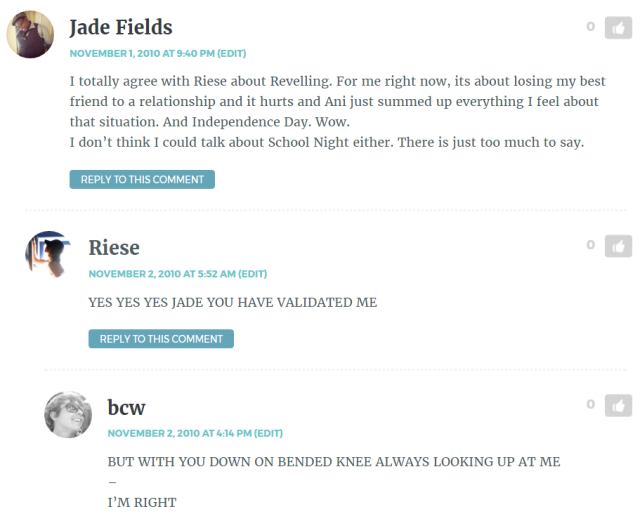
AD: In that song I was singing to my partner, yeah.
AS: Thank you for that, because that was what I thought and I WAS RIGHT!
Ani will be appearing at BabeFest in Provincetown, RI, on October 8th alongside Andrea Gibson, Rae Sanni, and Gracie and Rachel – tickets are here!
You can check out Ani’s upcoming tour dates with Andrea Gibson here, and you can find her full discography and more info, news and music on her website.
And since you’re already in the mood to overthrow the government, here for your revolutionary pleasure is a playlist of some of our favorite political music of Ani’s over the years! Hang in there everybody!
Some Real and Definitely Not Made Up Ani DiFranco B-Sides
No one knows how this happened, but the first time you came out to someone between 1990 and 2005, there was a person waiting just outside of the conversation ready to hand you a set of headphones playing Ani DiFranco. For me, “32 Flavors” was playing. I don’t know how it’s decided who gets what song, but wow is there ever a list from which to choose.
Ani DiFranco was so prolific in the 90s lesbian scrapbooking scene that I’m going to ballpark her discography at 900 songs (all of them killing it in the name department, some personal favorites being “Dog Coffee” and “Hat Shaped Hat”), and that’s not even counting b-sides. But as most b-sides go, Ani DiFranco’s are often overlooked, which is a shame, because they are equally moving. Let’s check out some of those b-sides, which are real and definitely not made up:
She Ate A Bird Why
Blring Goes My String
Kokopelli (How Dare You)
Slouch Hat
The Shame Chant
Educate Yourself In My Pregnant Pause And Body
No
Menstraisch
Mc Skat Cat (Wish I Could)
Distant Yelling
The Tin That Goes Doop
Jamie, Leesa, Angie
Panic Melody
Brandywine (Dip In The Slackline)
Everybody Shut Up
Trim Them
Inattention Is Attention
Mother Probiotic
Crack An EGG On Your Head Let The Yolk Run Down (People Dying Children Crying)
Ban Dogs I Ban You
Hoolahooped
Leather Dangle Necklace
Fertility Godless
Yeah No Shit, Mark
Falling Down As A Prelude
Make Them Apologize: Ani DiFranco Says Sorry For Plantation Retreat But Many White Fans Still Won’t
This weekend I wrote an extensive piece I hope you read about Ani DiFranco’s Righteous Retreat — an event scheduled to take place on Nottoway Plantation in Louisiana, a site “restored to its former glory” that openly whitewashed its brutal history, sold pro-confederacy literature in its gift shop, supported an anti-gay and anti-woman and anti-immigrant Australian billionaire, celebrated its founder as a benevolent slaveholder for allowing his slaves to take showers and praised its founder as a genius slaveholder for developing a system wherein slaves had to constantly whistle while walking to ensure they couldn’t eat or talk to each other. Following a significant backlash that lasted for many days before Ani or her colleagues responded, including a nearly unanimous declaration from black women that “this is super fucked up,”Ani DiFranco cancelled the event and published a defensive response referring to the fan response as “high velocity bitterness.”
The non-apology was justifiably deconstructed and rejected by the media including us, Gradient Lair, For Harriet, Racism Remixed, LA Progressive, TatiAnaMercedes, The Toast, Brittney Cooper for Salon.com, Tim Wise and twitter. A brilliant rundown of Ani DiFranco’s “whiteous feminist” fans was posted on Mollyruthb.
This weekend, a website called The Advocate (not The Advocate you are thinking of), published a piece titled “Nottoway manager: Historic site is resource for Education,” citing the official statement of Nottoway General Manager Neil Castaldi, who claimed the Plantation is an “educational resource” and one of many “powerful places that reflect on both good and bad moments in our country’s history,” and a key element of the town’s struggling economy. For starters, nothing good happened on plantations. Furthermore, somebody should’ve asked Castaldi if he thinks that perhaps the region would be less depressed — economically and emotionally, really — if its alleged financial center wasn’t a Shrine to Racism. If the only source of employment for a 77% African-American town would require its black employees to interact with and promote a revisionist version of this community’s violent racist legacy, maybe the leader of that employment source should think about revising how it does business.
Today, finally, Ani DiFranco released an actual (if incomplete) apology, an apology many of her die-hard fans had been hoping to see soon enough (although for fans like me, I imagine white privilege affords an optimistic patience in this regard):
everyone,
it has taken me a few days but i have been thinking and feeling very intensely and i would like to say i am sincerely sorry. it is obvious to me now that you were right – all those who said we can’t in good conscience go to that place and support it or look past for one moment what it deeply represents. i needed a wake up call and you gave it to me.
it was a great oversight on my part to not request a change of venue immediately from the promoter. you tried to tell me about that oversight and i wasn’t available to you. i’m sorry for that too.
know that i am digging deeper.
-ani
Many found this apology inadequate, many found it a genuine improvement, and many hold out hope that there will be more apologies and explorations as Ani does “dig deeper.” The apology was also posted to her facebook page, which provided an opportunity for said die-hard fans to stare into the eye of a viscously racist storm. In between gratitude and expressions of support were repeated affirmations from white fans who’ve seemingly missed everything Ani has ever sung about racial injustice and still don’t understand that their white voices, white feelings and white tears are completely irrelevant.
Now — as a journalist, I really hate the type of link-baiting posts that deliberately seek out a few incendiary tweets or facebook comments posted on a controversial (and usually race-related) issue, declare a trend, and incite a national kerfuffle, as was done last year regarding Gabby Douglas’s hair. (A mistake I’m sure we’ve made ourselves too, as we grow/learn.) This is the internet. If you need evidence to back up a point or a trend, there is a 100% chance that somebody, somewhere has said a thing on twitter that will serve your purposes. So I try to stay away from making generalizations based on targeted social media searches.
Unfortunately, in this case, the sad truth is that at least half of her fans, if not more, posting with their actual names and faces on Ani DiFranco’s facebook page, are telling her that the initial response was “pitch-perfect,” that people “put too much stock in the past,” and, resoundingly, that she is “only human and makes mistakes.” There are fans hoping she’s still “playing and doing [her] thing at the plantation,” lamenting that they “hope there aren’t too many weddings to reschedule.” There are fans wondering “how many people complaining really know your work.” Others blast her with statements like:




Those who criticized the choice, according to some of her fans, are “bullies” and “oversensitive” and “unwilling to understand.” They beg Ani not to “beat herself up over this.” As AfterEllen writer Heather Hogan accurately tweeted about these fans, “It bums me out when pop culture fandoms are as blindly, delusionally partisan as Fox News viewers.” In response, many activists called out Ani’s fans directly:


And some black fans expressed hesitation with being part of this fandom anymore:



I’m interested in hearing your feelings in the comments. However, if you are a white person who would like to argue that Team Ani is being unfairly treated for their handling of this situation, that her initial non-apology was acceptable, that a plantation is a “healing” site for a songwriting retreat, or really put forth any opinion which neglects the very vocal opinions of black people regarding this event, then our moderators will delete your comment the minute they see it (there may be a delay on this during the hours in which we are asleep, please don’t reply to those comments in the meantime unless it is to say “mods please remove this comment.”)
Out of Rage: Ani’s Not-So-Righteous Retreat
They were digging a new foundation in Manhattan
and they discovered a slave cemetery there
may their souls rest easy
now that lynching is frowned upon
and we’ve moved on to the electric chairWe’ve got it rehashed
We’ve got it half-assed
We’re digging up all the graves
and we’re spitting on the past.– Ani DiFranco, “Fuel”
A Not-So-Righteous Retreat
Ani DiFranco taught me — and maybe you, too — a lot of things about love and heartbreak and queerness and feminism and anti-racism and integrity. She also taught me — and maybe you, too — about respecting history, about acknowledging the violent colonialist origins of our present culture and about refusing to swallow government propaganda. She commanded us to “dig deeper, dig deeper this time, down beneath the impossible pain of our history, beneath unknown bones, beneath the bedrock of the mystery.”
Sure, when we quote Ani, we usually quote her telling our exes to fuck off and we quote her condoning our post-heartsmash recklessness. But in between “Sick of Me” and “Gravel” we have politics, too — some of the best political folk songs of our time from undoubtedly one of the most talented lyricists of all time. In Self-Evident, she indicts the Bush Administration’s response to 9/11, in ‘Tis of Thee she condemns a culture complacent in arresting black men in order to declare “ok the streets are safe now, all your pretty white children can come out and see Spot run.” The list goes on.
She didn’t just sing about social justice, though, she lived it: she spoke at rallies, hosted benefit concerts and backed grassroots political and cultural organizations through The Righteous Babe Foundation. She’s been active in anti-war, pro-choice and anti-death-penalty activism as well as the United States Campaign for Burma, the Buffalo public schools, The Katrina Piano Fund, The Roots of Music Program and the March for Women’s Lives.
We listened, and we learned, and we never thought we’d be presented with an opportunity to apply what we learned from Ani to, well — criticizing Ani. But that’s what happened this week when it was announced that Ani DiFranco would be hosting a “Righteous Songwriting Retreat” next summer at the Nottoway Plantation & Resort in White Castle, Louisiana. Yup. A PLANTATION. The four-day “all-inclusive” retreat would offer a variety of lodging options, including on-ground camping or more luxurious quarters (formerly inhabited by slave owners) ranging from $1,099 – $3,398 per person. 100 guests would enjoy workshops with Ani DiFranco and Toshi Reagan, concerts and “jamming” at night and a day trip to New Orleans. The event website promised a weekend spent “immersing yourself in music and art in a righteous way” and praised the splendor of their chosen locale.
The questions raised by this announcement were many: How can you do anything, let alone make music or art, in a “righteous way” on a plantation that once enslaved 155 human beings? A plantation that, following the Emancipation Proclamation, struggled so hard to remain profitable that its owner John Randolph then “tried the use of Chinese laborers” to maintain his gross wealth, an effort that thankfully “proved futile and was short-lived”? How can black women sing their truths on the same land where black women were sold, raped, tortured, overworked and beaten? Let alone a historical site which, through its media and glossed-over narrative, lavishes endless praise on Randolph as if he was not a man who enslaved human beings? A site that praises Randolph as a benevolent slave owner because he allowed his slaves to take showers?
A loud backlash justifiably ensued, and Ani’s facebook page became a site of incensed discourse between anti-racists and white total fucking morons, such as one white girl who created a fake facebook account for a black girl named LaQueeta Jones to defend The Retreat’s choice of venue.
“What is righteous about a retreat at a former plantation?” tweeted digital marketer Chevon Drew. “The #righteousretreat plantation is also not unionized, so it undoubtedly is run on exploited WoC labor today as well,” tweeted @juliawong. “You have a lot to answer for. I hope you have a PR team working on this #righteousretreat mess cuz you’re gonna need them,” tweeted The Angry Fan Girl.
A Change.org petition was launched asking Ani to cancel the concert:
Holding an event on the site of the genocide of black people is no way to show inclusion and intersectionality, both of which are important tenets of feminism.
Then, Kat Endgame at PQ Monthly did a little research and discovered that not only is the plantation a, you know, plantation, but that its annual revenue of $2.5 to $5 million goes to Nottoway Plantation Inc, which is owned by The Paul Ramsay Group. Endgame found that this Group is “the investment arm of Australia’s thirteenth richest billionaire Paul Ramsay, a healthcare mogul well known in Australia for donating half a million dollars to conservative Prime Minister Tony Abbott’s election campaign.” Abbot, Endgame points out, has “given more than $1.8 million to the anti-gay, anti-abortion, and anti-immigrant Liberal party over the last 14 years.”
I started writing this story yesterday morning. We emailed Righteous Retreats for a statement. We called Righteous Retreats for a statement. We called Righteous Retreats’ other phone number for a statement. We heard nothing in return.
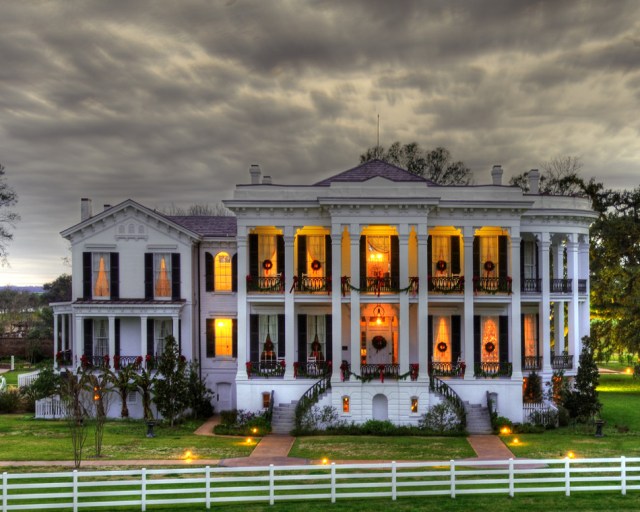
Nottoway during a winter storm in 2009 via weather underground
On Dark Tourism
If you’ve ever had the “pleasure” of visiting Nottoway or other sites of exploitation and murder turned into tourist attractions, known academically as “dark tourism,” you’re perhaps familiar with the profound cognitive dissonance experienced at these sites. “Dark tourism” is defined as “travel to sites associated with death and tragedy,” such as battlefields, the Hiroshima Peace Memorial Park, Ground Zero and the Spirit Lake Internment Camp. I remember being fascinated and entertained by my visit to Alcatraz as a kid, but when I returned as an adult a few years back, I was profoundly disturbed by this monument to machismo and “justice” characterized as fairly delivered and riotously entertaining. At Alcatraz, the “bad guys” are neatly defined and punished and the profound corruption and racism of our criminal justice system is rendered invisible. Of course, as S.J Culver wrote in his Guernica essay ‘Escape to Alcatraz” last year about the dissonance he experienced visiting Alcatraz, “I am not suggesting that it’s possible or feasible for the NPS to radicalize every visitor to Alcatraz Island. I am suggesting we bother to learn enough to radicalize ourselves.” He notes that “such ambivalence seems to be a sad commonality among redeveloped sites of human suffering such as prisons, asylums, and concentration camps.”
Plantations are not always considered part of “dark tourism,” but they should be. The horror of a concentration camp is clear-cut, but plantations actively obscure their darkness. Prisons and asylums are not, generally, beautiful buildings, whereas plantations are opulent and majestic by definition. Nobody wants to spend the night at Alcatraz, but Nottoway functions as a hotel and wedding venue. There are no memorial walls listing names of slaves beaten, killed or raped at Nottoway. Whereas sites of mass genocide are clearly advertised as such, plantations are relentlessly dishonest, designed and celebrated to bury a violent legacy. This is precisely what makes visiting these places so fucked up, and why a Righteous Retreat cannot take place there.
In fact, according to Carie Rael and John Belleci of The Social and Global Justice Program, there’s no acknowledgment at Nottoway that anything bad ever happened there. They recall a gift shop stocked with books like Myths of Slavery and The South Was Right. The latter, sporting a book cover embellished with the Confederate flag, claims to prove “how the South was an independent country invaded, captured and still occupied by a vicious aggressor.” The former plans to disprove that slavery was “cruel, unjust and contrary to our nation’s basic creed of individual freedom.”
Rael and Belleci visited the lush grounds and the on-site museum where a film portrayed the plantation owner as “a fundamentally benevolent man.” They were presented with a historical narrative that failed to even mention slaves at all, except when the tour guide praised Mr. Randolph’s wealth, noting that he received $20,000 in cash and twenty slaves as his dowry, which he used to build Nottoway. When the guide described Randolph’s growing wealth, Rael and Becelli recall that “she made it a point to quantify his wealth in terms of slaves, rather than money. The guide bragged that, at the peak of his wealth, Mr. Randolph had 155 slaves.”
The “bragging” didn’t end there:
The second mention of slaves came when the guide spoke of the ingenuity that Mr. Randolph displayed when he developed an intricate bell system which rang in different tones so that the slaves would know exactly which room they were needed in. The last mention of slaves on the one-hour tour came when the guide described the “whistling way.” This was the path that led from the outside kitchen to the dining room. As the guide noted, Mr. Randolph ordered his slaves to whistle while they walked along the path in order to ensure that they were not eating or spitting on any the family’s food.
The two concluded that the most disturbing aspect of Nottoway is that it is now “a resort where tourists can drive through the Black rural ghettos and arrive at the grand plantation and pay upwards of $240 a night to stay in ‘cottages’ which are replicas of the original slave quarters.”
“Scholarly observations indicate that very few black tourists engage in plantation tourism, and those seeking their own family history often tend to find this missing in the sites’ narratives,” write Linda Lelo and Tazim Jamal in Dark Tourism and Place Identity: Managing and Interpreting Dark Places. “Where the lives of enslaved Africans living and working on the plantations are acknowledged, they tend to be ‘dark’ stories overshadowed by those of their white owners.” Furthermore, “how these sites are represented and ‘produced’ greatly influence not only visitor experience, understanding, cultural identification and social well-being, but also . . . how the nation-state is portrayed and imagined by its citizens and residents.”
How could Ani DiFranco, who criticized how “white people are so scared of black people, they bulldoze out to the country and put up houses on loop-de-loop streets” in Subdivision, host a retreat at a site many black people feel triggered by? How could Ani DiFranco, who criticized the government’s neglect of post-Katrina New Orleans in J, host a retreat on a historical site that pays tribute to the racist history of this region?
The Response
This morning we heard from Toshi Reagon, a black queer musician also on the bill for this event, about her discomfort about holding a retreat at a plantation. (Sidenote: Reagon did perform at the trans misogynist and trans* female-exclusionary MichFest this past summer.) Reagon has requested that the statement she posted on her facebook page not be reprinted or edited in any form, so I encourage you to read it yourself.
A few hours after Toshi’s statement, another Righteous Retreat performer, Buddy Wakefield, a white cis man, chimed in with a vitriolic and highly offensive non-apology:
Until I or Ani or Toshi or anyone else are able to respond from our personal perspectives on the blunder, I think it’d be most productive for y’all to continue assuming the absolute worst, don’t you dare ask thoughtful questions as to how this really went down, venomously insult Ani and her years of efforts, then write as many demolishing statements and articles as possible in an effort to eternally shackle her to this oversight.
At last, this evening, Ani DiFranco released a statement that she would be canceling the Righteous Retreat. The tone of her statement was defensive and angry and deeply disappointing for many reasons, primarily its failure to include the words “I’m sorry.” Ani explained that she wasn’t aware of the venue when she committed to the event, and when she did hear about it, she apparently “thought to [herself] ‘whoa'” but “did not imagine or understand that the setting of a plantation would trigger such collective outrage or result in so much high velocity bitterness.” Yup, she truly characterized the righteous anger of her fans as “high velocity bitterness,” a classic technique used to silence marginalized groups — black women, in this case. Ani said that she had imagined “that the setting would become a participant in the event.” (Um, worst participant ever??) Ani:
this was doubtless to be a gathering of progressive and engaged people, so i imagined a dialogue would emerge organically over the four days about the issue of where we were. i have heard the feedback that it is not my place to go to former plantations and initiate such a dialogue.
tragedies on a massive scale are not easily dealt with or recovered from. i certainly in no way expect or want to be immune from that pain or that process of recovery. i welcome (and in fact have always pursued) constructive dialogue about these and all political/social issues. my intention of going ahead with the conference at the nottoway plantation was not to be a part of a great forgetting but it’s opposite. i know that pain is stored in places where great social ills have occurred. i believe that people must go to those places with awareness and with compassionate energy and meditate on what has happened and absorb some of the reverberating pain with their attention and their awareness. i believe that compassionate energy is transformative and necessary for healing the wounds of history. i believe that even though i am white, i can and must do this work too. if you disagree, i respectfully understand where you’re coming from and your right to disagree. i am not unaware of the mechanism of white privilege or the fact that i need to listen more than talk when it comes to issues of race. if nottoway is simply not an acceptable place for me to go and try to do my work in the eyes of many, then let me just concede before more divisive words are spilled.
Ani goes on to argue that “one cannot draw a line around the nottoway plantation and say “racism reached it’s depths of wrongness here” and then point to the other side of that line and say “but not here.”” This is an argument put forth by many of her supporters, such as a commenter on Toshi’s post who asked “what part of the US is without our blood, what soil is there without the blood of ancestors on it?” But hundreds of black women have spoken that this plantation is, in fact, where that line should be drawn, and us white people need to listen to that. It’s a lesson we are offered the opportunity to learn every time we are called out. Our feelings about how best to harness “compassionate energy” are irrelevant.
Even if one were to assign any value to the argument that you’d be hard-pressed to find any venue not built on the backs of racist exploitation, it’s impossible to deny the absolute wrongness of this venue’s commercialized whitewashed history, glorification of racist antebellum society, complacent commerce in racist revisionist histories and the fact that revenue garnered by the plantation will support corporate interests and an anti-gay, misogynist anti-choice politician. There is no way around that. Nothing righteous can happen here. Ani continues:
i know that indeed our whole country has had a history of invasion, oppression and exploitation as part of it’s very fabric of power and wealth. i know that each of us is sitting right now in a building located on stolen land. stolen from the original people of this continent who suffered genocide at the hands of european colonists. i know that many of us can look down right now and see shoes and clothes that were manufactured by modern day indentured servants in sweat shops. i know that micro profits from purchases that we make all day long are trickling down to monsanto, to nestle and to GE. i know that a sickeningly large percentage of the taxes we pay go to manufacturing weapons and to making war. and on and on and on. it is a very imperfect world we live in and i, like everyone else, am just trying to do my best to negotiate it.
She writes that she’s disturbed by the political leanings of the current owner of Nottoway, but argues that probably “there are a lot of rich white dudes with conservative political leanings” on the list of people profiting from venues she’s performed in. She asks if this kind of vetting is required for every gig and if it is “possible to ensure that no ‘bad’ person will ever profit in any way from my existence or my work?”
I understand that it’s hard to figure out where to draw lines and that it’s impossible to avoid supporting a “bad” person or corporation at some point — it’s a challenge that defines our daily existence running this site, often compromising our politics in order to pay the employees who write about those politics. But there are some clear-cut lines to be drawn — like we can safely say we’d never take advertising from Wal-Mart (and that we have turned down advertising from Michfest) and, as Toshi Reagon suggests in her statement, activists shouldn’t host events on plantations.
“Instead of canceling #righteousretreat, I’d rather @anidifranco give a decent mea culpa and just book it somewhere else. Why’s this so hard?” tweeted @HappiestAtheist.
“Bullshit is a phone booth that you somehow stumbled into and, look at you, you’re just like everybody else,” tweeted @mcILLCrop.
“Here’s how it shoulda gone down: Event Planner: “Hey Ani! What about a retreat at a planta— Ani: “NOPE.” aaaaand SCENE,” tweeted @angryblacklady.
“Reading @anidifranco, am grateful for canceling of plantation event but extremely disappointed in her defensiveness,” tweeted @erintothemax.
Ani writes that she’d planned a field trip to Roots of Music, a free music school for underprivileged kids in New Orleans, located in a building that formerly was the seat of a slaveholder government. This point is more valid as a counterpoint: a slave-built building converted to a music school is one thing, a slave-built building that currently serves as a celebration of slaveholding is another thing entirely. She ends with this:
i ask only that as we attempt to continue to confront our country’s history together, let us not forget that the history of slavery and exploitation is at the foundation of much of our infrastructure in this country, not just at old plantation sites. let us not oversimplify to black and white a society that contains many many shades of grey. and let us not forget to be compassionate towards each other as we attempt to move forward and write the next pages in our history. our story is not over and, Citizens of the Internet, it is now ours to write.
Unfortunately, even though Ani felt sad about the tone of many responses, there were also plenty of people asking for apologies and explanations in “pleasant” tones and plenty of black women sharing personal stories about their connection to Ani’s music — and they too were ignored, dismissed and disrespected today. Before Ani released her statement, The Daily Dot wrote that her failure to make a statement “is a true blow to many of her fans, who viewed her as a rare example of inclusivity and intersectionality among high-profile white feminists.” Well, the statement has been made, and the disappointment has only deepened.
Ultimately, she’s left us all wondering what she once wondered herself:
i’m wondering what it will take
for my country to rise
first we admit our mistakes
and then we open our eyes.
Top 10 Best Albums of 2012 (That I Never Heard)
Welcome to the time of the year where every music writer everywhere declares a ten or more albums to be THE BEST IN THE WHOLE WORLD, like a million times better than all those other new albums you’ve been listening to under the misguided impression that they are amazing.
According to other websites’ ‘Best Of’ lists, I didn’t listen to many good albums this year. (Apparently Green Day‘s Uno wasn’t a critic favorite, what a shock). Therefore I felt unqualified to compile a ‘Best Of’ list of my own. So here are ten albums that I predict would have made it on to Autostraddle’s own “Best Of’ list, had I actually heard them. I did not.
good kid, m.A.A.d city
Kendrick Lamar
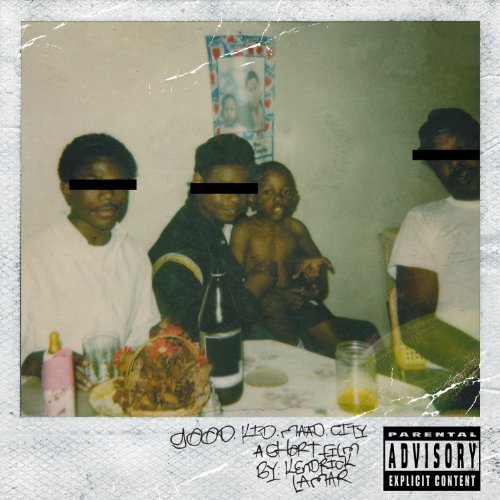
When Kendrick Lamar‘s name first started popping up everywhere on the internet, I asked my friend, “who is this Lamar person?” and he replied, “Oh, he’s one of the guys from Nickelback“. Due to my trusting nature, I didn’t bother confirming this via independent research. I know.
So! With the belief that Kendrick Lamar was one of the people responsible for this musical travesty and others, I spent most of 2012 avoiding reading about or listening to anything with his name on it. It wasn’t until earlier this month — when good kid, m.A.A.d city topped every ‘Best Of 2012′ album list — that I realised Kendrick Lamar is actually a hip hop artist and I am actually an idiot. What if he really was in Nickelback though.
Which Side Are You On?
Ani DiFranco
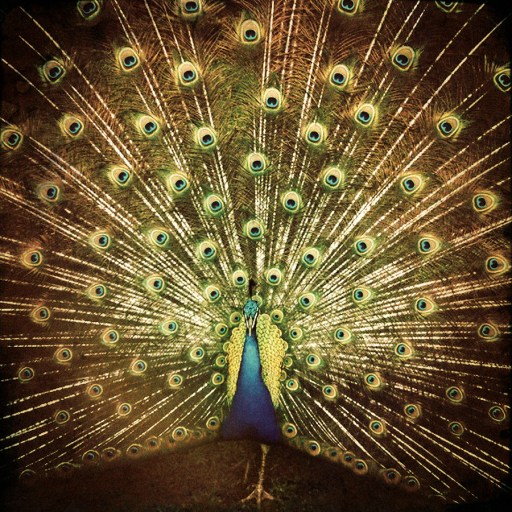
Ani‘s Which Side Are You On? dropped in the same month that I made a New Year’s resolution to start writing the lesbian romance novel that I’ve been half-joking about writing forever. Rather than share in Autostraddle’s excitement over Ani’s sweet new sounds, I spent January holed up in my room trying to decide which super butch name I’d give the tall, dark and dashing stage-hand who falls in love with the deeply-closeted Broadway superstar. How does everyone feel about ‘Harley’?
Coexist
the xx
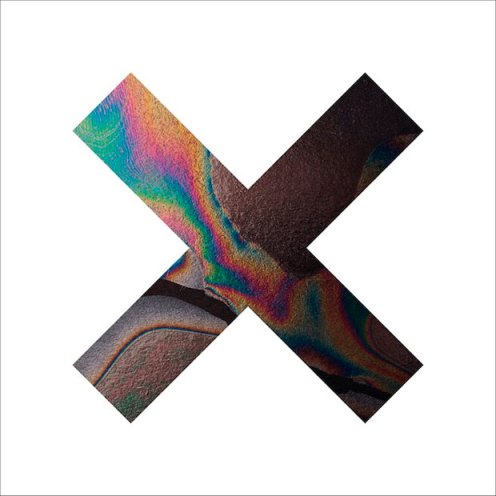
Coexist was released during a time that I had been sequestered to a Taiwanese monastery. There was no internet or music players, just a straw mat to sleep on and days and days of reflection time which an the xx album would’ve been the perfect soundtrack for. I fully intended to buy Coexist in the hot second of internet connectivity I experienced between Taiwan and A-Camp, but then I downloaded P!nk‘s new album instead. You probably already know this but, it was the wrong call.
Lonerism
Tame Impala
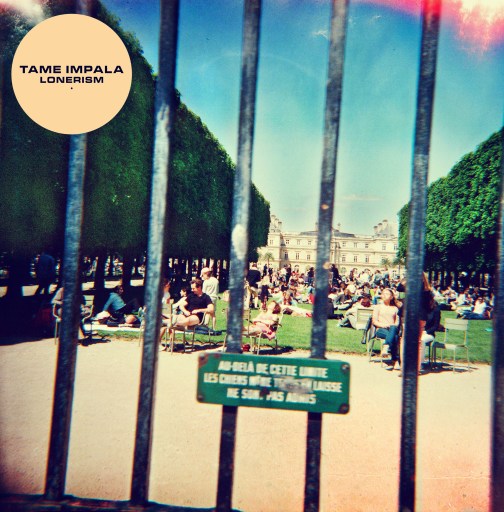
The only time I ever hear Tame Impala‘s name is when music critics declare that they’ve written the best album of the year, which is strange; I don’t recall anyone ever saying to me, “I’m seeing Tame Impala tonight!” or “I just bought the new Tame Impala record, it’s rad!”. Maybe I just don’t personally know any Tame Impala fans or maybe only music journalists buy their records, I don’t know.
Unlike Lonerism, I did actually buy the last Tame Impala album that reached the top of every ‘Best Of’ list, Innerspeaker (2010), but it’s sitting in my CD cabinet still in its original shrink wrap. For an unknown reason my brain has decided that I’m not going to be a person who gives Tame Impala and their critically acclaimed psychedelic rock a chance.
Sun
Cat Power

Earlier this year I talked a really big game about how the new Cat Power album was going to be totally amazing and probably also life-changing. Then another totally amazing life-changing forthcoming release must have caught my attention because Sun was eventually released and I forgot to buy it. I vaguely recall streaming it once but if I can’t really remember then it doesn’t really count.
Theatre Is Evil
Amanda Palmer & The Grand Theft Orchestra
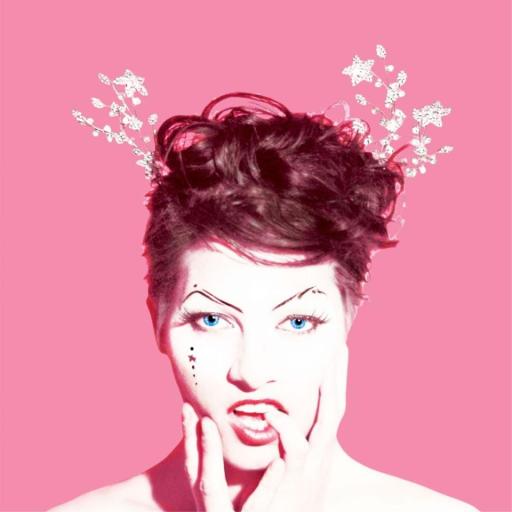
I was really excited about listening to Amanda Palmer‘s new album, Theatre Is Evil, ‘til I discovered that she wasn’t paying her guest musicians despite having recently raised $1.2 million via Kickstarter. $1.2 million! That’s a significant recording budget. When you add merchandise and ticket profits on top, finding a spare $35K in the budget to pay tour musicians doesn’t seem impossible. Having those funds available and choosing not to use it to pay musicians is, in my opinion, a dick move, and I never imagined that Palmer would’ve pulled it. Although she eventually started paying people, I’m still unsettled by the whole thing and need more time.
Blunderbuss
Jack White
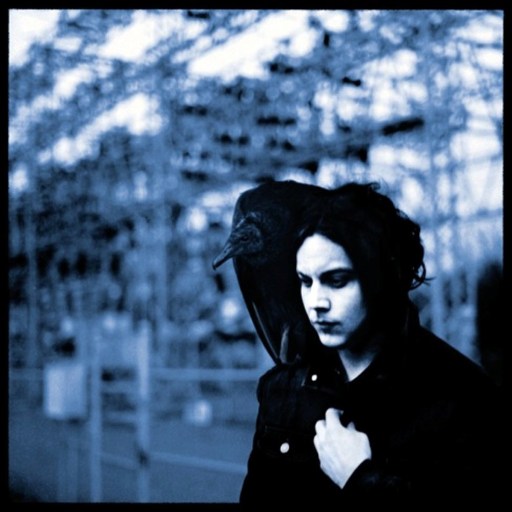
As a rule, Jack White can do no wrong. Unless we’re discussing that song he did with Insane Clown Posse about ass licking, which was not for everyone. I’ve heard many of the Blunderbuss tracks and they’re all amazing and so it’s no stretch to assume the entire album is amazing. I have no idea why I don’t own it.
The Temper Trap
The Temper Trap
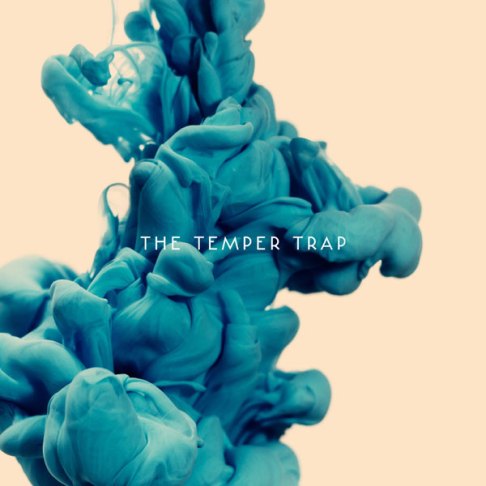
I wasn’t even aware that the Temper Trap had a new album out until last month when they won some things at the ARIA Awards, which are Australia’s version of the Grammy’s but with one-hundredth of the budget and entertainment value. If you’re an empathetic blusher like me then it’s pretty much like watching people get pranked – awkward and embarrassing, but for four hours straight. For some reason Nicki Minaj and Taylor Swift were on the guest list; one made a polite attempt at paying compliments to Australia’s music talent and the other didn’t even pretend to care. I’ll let you mull over which was which. Anyway, The Temper Trap apparently released The Temper Trap this year but it doesn’t have “Sweet Disposition” on it and so I’m not really sure I want to listen.
Channel Orange
Frank Ocean
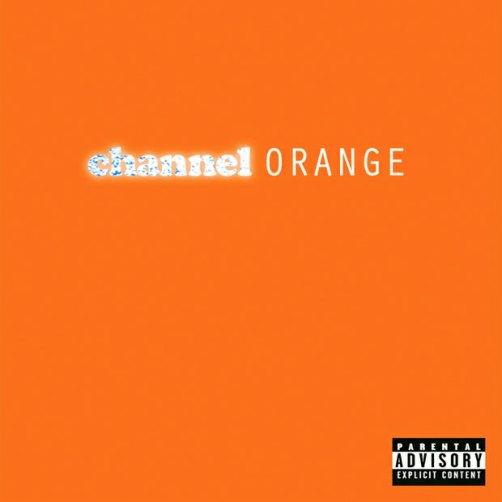
When Channel Orange was released, Carmen wrote this really amazing review for Autostraddle and therefore the album plummeted down the list of things that I needed to hear immediately for music editorial purposes. I’ve heard and loved a handful of the tracks (“Bad Religion” is my favorite) but I’m fairly embarrassed that it’s December and I still haven’t heard this whole record. I’d download it right now to save face except I don’t want my relationship with Frank Ocean to be built on a lie.
The Heist
Macklemore and Ryan Lewis
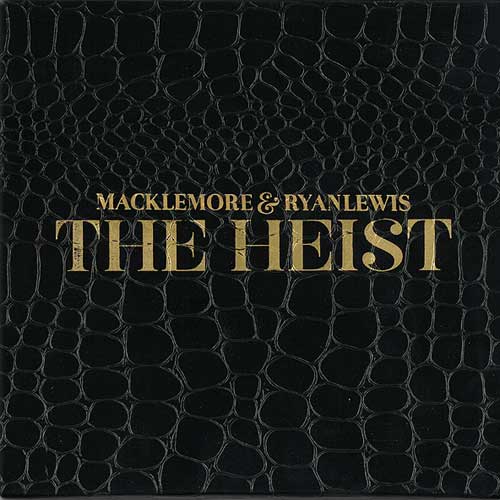
I can’t go a day without seeing an Autostraddle reader posting something about Macklemore on Facebook. You think that’d be motivation to listen the The Heist immediately, but the truth is that y’all seem to love Macklemore so hard that I’m actually a little scared. What if I don’t like the album? Will you still read my writing? Will you de-friend me? Maybe it’s better that we never know, you know?
Which albums did you fall in love this year?
Playlist: You Can Go Home Again
We spend a lot of time out there in the world, learning lessons, making money, saving cats from trees, dodging fast objects, meeting people, and getting our shoes dirty with dirt from all over. And yeah, it’s rewarding as anything. But sometimes — at the end of the day or week or fiscal year, or because it’s Thanksgiving, or your sister’s having a crisis, or you forgot your lunch in the fridge — it’s time to punch out and come home. Music knows this. Here’s a bunch of songs to soundtrack your journey, whether it’s by plane, train, or daydream.
You Can Go Home Again
[STREAM THE PLAYLIST HERE]
Yellow Brick Road – Captain Beefheart & His Magic Band
Homeward Bound – Simon & Garfunkel
English House – Fleet Foxes
You Had Time – Ani DiFranco
Home – Glasser
Astronaut – Beach House
Moonlight Mile – The Rolling Stones
Come On Home – Indigo Girls
Bring It On Home – Led Zeppelin
Tennessee Homesick Blues – Dolly Parton
Isis – The White Stripes
Hear My Train A Comin’ – The Jimi Hendrix Experience
I Follow Rivers – Lykke Li
Home – She & Him
Welcome Home – Radical Face
I’m Coming Home Again – Kanye West
Head Home – Midlake
Via Chicago – Wilco
Hometown Glory – Adele
This Must Be The Place (Naïve Melody) – Talking Heads
Run Home Slow – The Kills
I’m Going Home – Sacred Harp Singers
Make Your Way Home – Abigail Lapell
From St. Kilda to Fitzroy – Amanda Palmer & The Grand Theft Orchestra
Home – Edward Sharpe & The Magnetic Zeros
Wagon Wheel – Old Crow Medicine Show
Tell me your favorite going home tracks below.
Want to suggest a playlist theme? Hit Crystal up on Formspring and someone on the team will make it for you.
Ani Difranco Wants Your Videos For Her New Song “Mariachi”
Jamie’s Team Pick:
For those looking for a way to garner lesbian internet fandom only matched by the girl who wrote about Autostraddle with the autoharp, Bust magazine informs us Ani wants your help in making the music video for her song “Mariachi” from her album Which Side Are You On? To participate, you can submit Youtube videos of you (or your friend’s) interpretation of this new song, be it singing, dancing or (if we can judge your talents by the A-Camp talent show,) interpretative hula-hooping to a ukulele cover of the song. Stuff you could win includes a signed vinyl test-pressing and a Righteous Babe Records prize pack in addition to potentially being in her new music video.
Full disclosure: I was underwhelmed by this new song. But it’s Ani! So either go submit a video or maybe let’s just talk about our favorite Ani songs from her arguably more righteous earlier albums and/or favorite concert experiences watching her wail on a guitar before a sea full of lesbians. I know I’ve seen you at Ani Difranco Appreciation Club Meetings before.

Playlist: Moving from Somewhere Old to Somewhere New
Sometimes moving is sad, and sometimes moving is bittersweet, and sometimes you are so ready to burn [insert your city of no-longer-choice] to the ground behind you on your way to the future. This playlist is for those times.

We Gotta Get Out of This Place – The Animals
Born to Run – Bruce Springsteen
Movin’ Out – Billy Joel
Light Enough to Travel – The Be Good Tanyas
A Place Called Home – Kim Richey
Grow Up and Blow Away – Metric
Out of Range – Ani DiFranco
On The Road to Find Out – Cat Stevens
Speeding Cars – Imogen Heap
Never Going Back Again – Fleetwood Mac
Lucky Town – Bruce Springsteen
Want to suggest a playlist theme? Hit Crystal up on Formspring and someone on the team will make it for you.
Playlist: Holding Hands While Walking Across a Bridge
There are those moments when that person, the one that pushes your heart to skip double dutch beats, is in that place. The place you happen to be. Eyes meet. Smile confirms that person is pleased to see your eyes, your face: you. All words and events lead to you + person exiting place, entering world. Walking shoulder to shoulder, walking without destination because next to them is the only place worth being. Footsteps fall into rhythm. Laughter fills awed gaps. You notice their dimples shine like suns that exist only in poems, daydreams and planetariums. They may not be “the one” but this person in this moment is all yours. The walking slides you past beer soaked bars, through chaotic crosswalks, blindsiding intersections, past city limits into quiet. You + person stand before a bridge. Somehow hands understand, they’ve already reached for each other. Eyes meet to confirm that both of you are real, that this is happening. Together, you take on the bridge not caring where it ends or if it ends. One step after the other, fingers intertwined and infinity stretching out before both of you…
This is a playlist for that moment.
Lonestar – Norah Jones
Falling in Love Again – Billie Holiday
Always Where I Need to Be – The Kooks
Both Hands – Ani Difranco
Crazy for You – Adele
A Long Walk – Jill Scott
Walking After Midnight – Girl In a Coma
Feel it in My Bones – Dj Tiesto feat. Tegan and Sara
D’yer Maker – Led Zeppelin
The Other Side – Bruno Mars feat. Cee Lo Green & B.o.B.
Roads – Portishead
Your Hand in Mine – Vitamin String Quartet
![]()
Want to suggest a playlist theme? Hit Crystal up on Formspring and someone on the team will make it for you.
Playlist: Just A Girl In The World
+
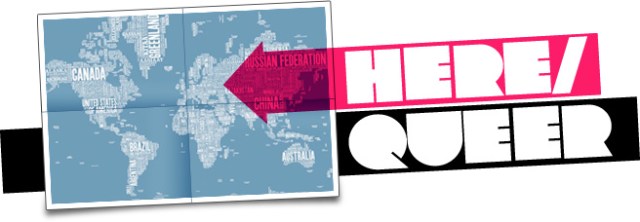
0. 2/20/2012 – Here/Queer Call for Submissions, by Riese
1. 3/02/2012 – Queer Girl City Guide: Montreal, Canada, by Sid
2. 3/05/2012 – Playlist: Here/Queer, by Riese
![]()
In honor of Here/Queer month, I’ve assembled some of my favorite songs about places! I wanted to include Will Smith’s “Miami” but wasn’t sure if anyone besides me likes that song. Let me know. I can change anything, anytime.
Carolina On My Mind – James Taylor
Anchorage – Michelle Shocked
Southern California Wants To Be Western New York – Dar Williams
Chicago – Sufjan Stevens
London – The Smiths
Georgia On My Mind – Ray Charles
Graceland – Paul Simon
California – Joni Mitchell
Iowa – Dar Williams
Autumn in New York – Billie Holliday
The City of New Orleans – Arlo Guthrie
Feelin’ Massachusetts – Juliana Hatfield
Hello, Birmingham – Ani DiFranco
China – Tori Amos
Look At Miss Ohio – Gillian Welch
Nashville – Indigo Girls
Boston Song – Abigail Lapell
I Wish I Was In New Orleans – Tom Waits
Munich – Editors
The Ghost of Geneva Heights – Stars
Ohio – Crosby, Stills, Nash and Young
Calgary – Bon Iver
London Calling – The Clash
No Sleep Til Brooklyn – Beastie Boys
California Love – Tupac
I Want To Go Back to Michigan – The Mellomen with Thurl Ravenscroft
To West Texas – Explosions in the Sky
Melissa Ferrick Is Right Here, Still: The Autostraddle Interview
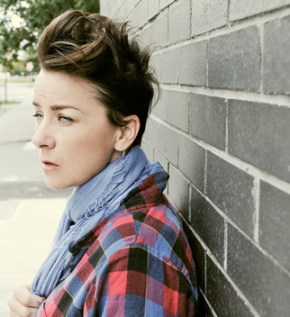 Melissa Ferrick‘s career kicked off with a freak chance of fate back in 1991 when she was called in last minute to replace Morrissey‘s opening act less than an hour before showtime. She seized this golden opportunity and built an insanely loyal fan base by touring the world and releasing 12 studio albums (plus four live) over the last 20 years. Many have been introduced to Melissa through her tours with fellow female-centric, gay friendly, acoustic singer songwriters like the Indigo Girls, k.d. Lang, Tegan & Sara, Rachael Sage and Ani DiFranco, in particular. However, she is probably best known as the singer of “Drive,” that uber sexy song you love from the mix tape your ex-girlfriend gave you.
Melissa Ferrick‘s career kicked off with a freak chance of fate back in 1991 when she was called in last minute to replace Morrissey‘s opening act less than an hour before showtime. She seized this golden opportunity and built an insanely loyal fan base by touring the world and releasing 12 studio albums (plus four live) over the last 20 years. Many have been introduced to Melissa through her tours with fellow female-centric, gay friendly, acoustic singer songwriters like the Indigo Girls, k.d. Lang, Tegan & Sara, Rachael Sage and Ani DiFranco, in particular. However, she is probably best known as the singer of “Drive,” that uber sexy song you love from the mix tape your ex-girlfriend gave you.
Her live shows are a unique experience as she draws the audience into her inner world, sharing the back stories and inspiration behind many of her songs. After a four year hiatus, her frustrating bout with writer’s block is finally over with the release of her new album, Still Right Here.
I chatted with Melissa about life as a sober musician on the road, her friendship with Ani, her coming out story, the inspiration behind “Drive,” and why she’s a little irritated that the lesbian anthem was never used on The L Word.
What’s the funniest or most memorable thing that has happened to you on stage or on the road?
Well, I had a show in Buffalo where I was in the middle of playing an older song and – this isn’t the first time this has happened – and a fan who had been partaking in far too many alcoholic beverages decided it was time to come up on stage. I was literally in the middle of playing a song and she walked up on stage and started talking to me! Like, “I need to tell you about my girlfriend….” and I’m still playing the song and the crowd has obviously got my back. She’s stumbling a little bit and I know tomorrow she’s not going to remember that she’s done this thing so that’s horrifying. There were wires everywhere and she was obviously intoxicated and I didn’t want her to fall and hurt herself, so I ended up talking back to her like, “Oh that’s really neat! I will totally hang out with you after the show, but you need to get off the stage because you’re gonna fall down.”
So, really weird things like that happen. I remember in Northhampton I walked over to the side of the stage and there was a girl sitting on the stage and I went over and she was just smiling at me. She seemed really nice, so I made out with her. She just seemed like someone I would make out with and I wanted to kiss her, so I did.
That’s amazing.
Because sometimes I play and I feel invisible, you know? It’s an experience for me too — it’s kind of a give and take thing. That show was packed. It was standing room only and Tegan and Sara were opening for me, so it was huge. This was at the height of that scene in the early 2000s and I just thought “fuck it, why not!” I will say I did manage to keep playing the guitar while I made out with her, so I was pretty proud of that! I can kiss and play guitar at the same time.
How is it to be a sober musician playing in bars and clubs? I have friends who are musicians so I know they are sort of obligated to hang out after their shows and party with the crowd and club owners. How has it been for you?
Most of the time, 95% of the time, I just don’t have the desire to drink anymore. But that comes and goes. Sometimes I do want to, but I don’t drink. It’s not that I feel any sort of obligation to drink — I’m an adult and I never feel any pressure from club owners to hang out with them. If I were to say that I feel pressure to drink and hang out, that would just be an excuse, you know? It’s my responsibility. If I drink or do drugs, it doesn’t work for me. I’ve done it, and it doesn’t work for me. I’m really comfortable with just trying to be who I am. What I do struggle with is fear, which is part of being an alcoholic. For me, fear expresses itself in anxiety and panic, and when that happens it’s difficult for me to interact with people. It’s difficult for me to take care of myself physically, so I lose weight. I get anxious. There are lots of people have that problem.
Was there a defining moment when you decided to quit drinking? You were 26 or something, right?
That part of my story I’m really not comfortable sharing because it’s so private. I think I’m comfortable saying it got to a point where I had a moment of clarity where I felt that I could no longer continue to live my life as I was. That has happened to me in sobriety. It’s not just about the drinking. The disease of alcoholism is a mental and physical experience. It’s a lifelong problem. It’s literally a day at a time. Some days are really easy, and some days my head feels like I need a drink. It gets crazy up there and other people who have this problem will relate to that.
You teach song writing at Berklee, right? What advice do you have for singer/songwriters looking to get to the next level of their career? Obviously there are the competition shows like “The Voice” as a fast track to a career, but so few have that opportunity.
Well, for the students I notice that everyone is trying to be somebody else, and the point is that you already are somebody. You don’t have to try to be anybody else. Taking that pressure off is something that has to be re-taught over and over and over again. You need to be reminded that you can stop trying to be somebody. You have to play live. And the truth is, in the indie world you have to do it all yourself. You are responsible for your own career.
I highly suggest they take music and business classes. It’s incredibly important. There is a lot of great co-writing that’s going to happen and stuff that you can learn about melody and metaphor and similes and beats of measures that make songs stronger. It’s a craft, and it’s something I’m still learning. I’m currently auditing four classes right now at Berklee. For a long time I didn’t really believe you could teach songwriting, but I think I’ve changed my mind about that. There’s a lot of talent. There are women and men who are writing circles around me and other people that I know who are really inspiring me to be a better writer and that’s what I love about it.
[yframe url=’https://www.youtube.com/watch?v=T5s1F25g8is’]
A while ago you had said that you don’t mind people downloading your music for free online. You likened it to sharing a mixtape with a friend and people discovering you that way and you’ll make the money other ways, whether they’ll come to a show or buy merchandise. Do you still feel that way about online piracy?
That’s a good question. My instinct is to tell you yes, I’m still cool with it. But I gotta tell you, I’m quite certain that a lot of people have stolen my song “Drive” and I would probably be retired if every single lesbian had downloaded it legally, versus what I’ve made from the women who’ve actually bought a ticket to watch me play live. I don’t know? I think the real question is, aren’t you supposed to get both?
When I go to YouTube and I see people using “Drive,” particularly to edit better scenes from the The L Word, when my song was never in The L Word! I have a little bit of a problem with that. I don’t think that’s really fair. First of all, it’s just misrepresentive because I never got placed in that show, that song never appears. The whole world of intellectual property and copyright law — Oh my god, I get ramped up over that. It’s crazy. But do I care? Ultimately no. I just had ravioli and I have a car in the parking lot. I paid my mortgage this month. Ultimately, everything is cool. I think I just can’t get wrapped up when I think I’m owed. It’s such a negative space to be in like energy wise. I can’t walk around thinking people owe me stuff, you know?
[yframe url=’https://www.youtube.com/watch?v=5tuyTu8YbOs’]
When “The L Word” was on the air were you actively trying to get a song of yours played? Did you submit to the music supervisor (Elizabeth Ziff aka EZGirl)?
Yes, yes… I was offended that none of my music was on “The L Word.” I was disappointed and kinda shocked, actually. Even though I didn’t actively pursue it, I know the creator of the show and I know the music supervisor. But I was never asked, so that’s a bummer. I would’ve written a song — I probably would’ve let them use it for free! But I’m still a fan and I’m a fan of those people. I still like them as people. But I thought it was a little odd.
How do you know Ilene Chaiken?
I filmed my first music video at her house in Los Angeles. I was friends with her ex. I’ve had many dinners with her.
Wow, that’s funny.
That’s one word for it! [laughing]
What do you think of The Real L Word?
I think it’s awesome! I think it’s like The Bachelor for lesbians! [laughing] It’s so bad it’s fantastic! I love it. I’m obsessed with that girl with the fucking dreads.
I hate her and I want to make out with her. You know what I mean? I love it! It’s not like I DVR it, but if I’m home from a tour and I’ve missed three weeks of The Real L Word I better watch all of them. It’s reality TV for lesbians.
We need to talk about “Drive.” How did the song come about exactly? Your girlfriend at the time dared you to write a song about sex? Were you avoiding writing something that was so explicitly sexual before that?
Ok, well Janet Jackson‘s Velvet Rope album was a huge record and I fell madly in love with this girl who lived in California. I was moving back home to Boston and she drove across the country with me, and while we were driving she played me Velvet Rope. And Janet Jackson was making these sexual noises on that record and I cannot even describe… I’m just like… hearing sex drives me crazy. Seeing sex — if you were just like watching sex on TV with no sound — it wouldn’t phase me. But I’m a sound person, obviously. So she played me this record and I couldn’t even listen to it because it just worked me up so much. And so, you know, we had to drive across the country and there were some car moments with the record [laughing]. We would fool around in the car while Janet Jackson‘s Velvet Rope was on, and that’s how it happened. I was like “This is unbelievable. Janet Jackson is so ballsy to do this. This is amazing.”
And my girlfriend at the time was teasing me saying, “You could never do a song like this.” So I basically wrote the song for her to show her I could do it and she said I was crazy if I didn’t release it. The original version I sent her was like 14 and a half minutes long but I don’t have a copy of it. She still has it.
[yframe url=’https://www.youtube.com/watch?v=Rp9eQ3OBNS8′]
What are you listening to right now?
Honestly, and this is so boring, but I mostly just listen to classical music. And not to give another nod to my friend Ani, but her new record is brilliant and “Hearse” is just absolutely amazing.
That’s my favorite song on her new album.
As soon as I got the record I let her know. I just replied to her immediately and was like, “Forget about it with ‘Hearse,’ It’s awesome.” It’s a killer song.
How did you and Ani meet and become friends?
I met Ani originally in 2005 in New Orleans. I was playing a gig there with her old drummer and keyboard player, so she came and hung out backstage after the show. It was really random. The next day we were off, so she invited us over for dinner. Then we did a tour together — the first of a bunch of tours we’ve done together. We’re becoming great friends and she’s just an amazing human being and an incredible artist. She’s the real deal, ya know? She’s trying to be the best person she can and I really admire that about her. I admire her generosity and also her ability to separate her artist self from her personal life and set boundaries and take care of her personal life. There are really different sides to her. I don’t have that ability, so I really like to learn from that.
Next:
Melissa’s coming out story, how not to sell albums
and a weekend affair-turned-inspiration
Playlist: Music For Writing With Your Heart Split Open
 I’d drink white wine from a coffee mug with the window cracked and my heart split open. I had this stupid blog where I kept all my feelings and these songs made me feel really vulnerable and if you’re going to share all your feelings with hundreds of strangers then that’s the kind of music you need. You need music that can gut you.
I’d drink white wine from a coffee mug with the window cracked and my heart split open. I had this stupid blog where I kept all my feelings and these songs made me feel really vulnerable and if you’re going to share all your feelings with hundreds of strangers then that’s the kind of music you need. You need music that can gut you.
I’ve gone through phases with writing music. Before mp3s and iTunes and Limewire and streaming music, it wasn’t so easy to put a bunch of different songs on a list and listen to them so you’d have to pick entire CDs. So in the 90’s I would write to random stuff like Sarah McLachlan, Miles Davis, Billie Holiday, Mazzy Star, Beethoven, Ida, Nick Drake, Bob Dylan, Beatles’ The White Album, the Stealing Beauty soundtrack.
The thing about writing music is the words. So you try to find some songs without words, and songs that are slow. Or you pick songs with words you know so well that it’s almost like there actually aren’t any words at all. If I’m writing about something other than my feelings or your feelings, then I’ll just listen to classical music on Pandora. I recommend that.
So these are songs you could write to if you wanted to. None of the words are too distracting, but it sets a mood.
What do you listen to when you write?
Ave Maria – Franz Schubert
Swimming Pool – Freezepop
23 – Jimmy Eat World
This is Everything – Tegan & Sara
Ender – Finch
Suite Bergamasque: III. Clair de Lune – Claude Debussy & Michel Beroff
What the Snowman Learned About Love – Stars
Flamenco Sketches – Miles Davis
Revelling – Ani DiFranco
Set Fire to the Third Bar – Snow Patrol
If 6 was 9 – Jimi Hendrix
The Gift of Balance – Gorecki
Breathe Me – Sia
Lover, You Shoulda Come Over – Jeff Buckley
Will the Night – Low
Dome Epais – Delibes
Fade into You – Mazzy Star
Einstein On the Beach – Knee 5 – Phillip Glass Ensemble
It’s a Fire – Portishead
Nora – Dar Williams
Take it With Me – Tom Waits
Mystery Lights – Uh Huh Her
A Case of You – Joni Mitchell
Roxana’s Aria – Karol Szymanowski
Nude – Radiohead
Act I: O Soave Faniculla – Herbert Von Karahan; Berlin Philharmonic Orchestra
God Bless the Child – Billie Holiday
Trois Gymnopedies: No 1 – Anne Queffelec
Sick of Me – Ani DiFranco
The Blower’s Daughter – Damien Rice
High Hopes – Pink Floyd
Pink Moon – Nick Drake
You Don’t Know What Love Is – John Coltrane
November – Azure Ray
Cruel and Clumsy – Chris Pureka
Ani DiFranco’s New Album “Which Side Are You On?” is Both Good and $4
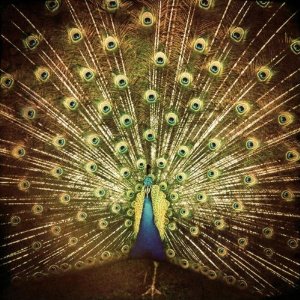 Last April, bcw and I, aka The Ani DiFranco Appreciation Club, caught Ani in concert at The Filmore in San Francisco. Typically I hate it when artists play songs from their new/upcoming albums at concerts because it takes a few listens for me to really like a song but mostly because I clearly came there to hear the songs I already love, but live and in a room with a bunch of other fans who know all the words.
Last April, bcw and I, aka The Ani DiFranco Appreciation Club, caught Ani in concert at The Filmore in San Francisco. Typically I hate it when artists play songs from their new/upcoming albums at concerts because it takes a few listens for me to really like a song but mostly because I clearly came there to hear the songs I already love, but live and in a room with a bunch of other fans who know all the words.
But we left the concert genuinely pumped about the new album, Which Side Are You On?, which comes out today and is only $4 on Amazon dot com! I just bought it and I feel really good about it, like that was definitely the best purchase I made all day. If you like it you should probably go to your local independent music store and buy a hard copy as well, just for funsies. From her website:
Which Side Are You On? marks DiFranco’s first studio album in more than three years. The collection features 11 new songs alongside a radically reworked rendition of the classic title song, famously popularized by the one and only Pete Seeger nearly five decades ago, but no less relevant today…
“I’m testing deeper waters with the political songs on this album,” she says. “I feel a little bit frustrated, politically desperate. After having written hundreds of songs over decades, I think, ‘Now what? How far can I go with this? Can you sing the word ‘abortion,’ can you sing the word ‘patriarchy’ – what can you sing and get away with? I guess I’ve been pushing my own boundaries of politics and art. Seeing what people have the ears to listen to. How big is my mouth? What can I get out of it successfully?”
Perhaps this occasion calls for a track-by-track Ani DiFranco Appreciation Club Meeting post? Time will tell…
Playlist: I Kissed a Gay Girl and I Loved It
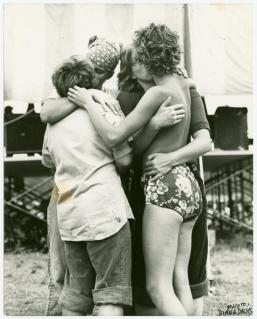
michigan womyn's music festival - 1976
Last night’s episode of Glee was entitled “I Kissed a Girl” and features hands-down the gayest girly playlist of all fucking time: Melissa Etheridge, Dolly Parton, KD Lang, Cyndi Lauper, and that Katy Perry song we all love so much. Of course not all of those musicians are gay, but that’s besides the point, I suppose.
A while back we did a Lez the Fuck Out: B-Sides playlist, but I was inspired by last night’s incompleteness to assemble the Lez the Fuck Out A-List.
Prove it On Me – Ma Rainey
Fast Car – Tracy Chapman
Hot Topic – Le Tigre
I Kissed a Girl – Jill Sobule
Do It Like a Dude – Jessie J
Take Me On the Floor – The Veronicas
As Cool As I Am – Dar Williams
Damn, I Wish I Was Your Lover – Sophie B. Hawkins
If It Isn’t Her – Ani DiFranco
Nineteen – Tegan & Sara
Power of Two – Indigo Girls
Rebel Girl – Bikini Kill
Become You – Indigo Girls
Secret – Missy Higgins
Constant Craving – k.d. lang
Weakness in Me – Joan Armatrading
Take Me or Leave Me – Cast of RENT
Some Kind of Wonderful – Pam Grier & Betty
Drive – Melissa Ferrick
You Don’t Own Me – Lesley Gore
Say So – Uh Huh Her
Young James Dean – Girlyman
Come to my Window – Melissa Etheridge
Playlist:
![]()
What are your favorite lesbian songs? Remember that to make these mixes we actually have to own the songs ourselves, so if you see something that isn’t on here and you are absolutely horrified by that omission, you gotta email me the song!
Want to suggest a playlist theme? Hit Crystal up on Formspring and someone of the team might create it for you.
Playlist: Lez the Fuck Out (The B-Sides)
You either know the classics (or have intentionally avoided them all your life) — Indigo Girls’ Closer to Fine, Melissa Etheridge I Wanna Come Over, Tracy Chapman Fast Car, Ani DiFranco Untouchable Face and so forth.
But let’s take a slightly deeper look into the Lez the Fuck Out Canon — all the musicians on this list have kissed a girl and liked it.
Lez the Fuck Out
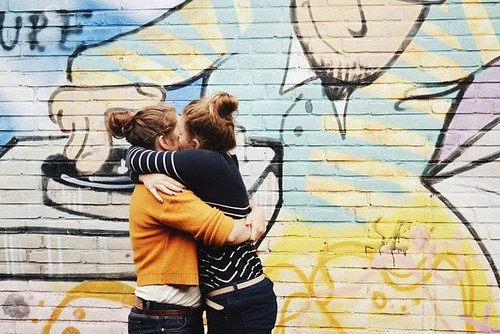
This Is Everything -Tegan & Sara
Blood And Fire – Indigo Girls
To Feel Real – Melissa Ferrick
I Wanna Be Your Joey Ramone -Sleater-Kinney
The Promise – Tracy Chapman
Parentheses – BLOW
Where I Stood – Missy Higgins
What Can I Say – Brandi Carlile
TKO – Le Tigre
Camp Out – An Horse
At Seventeen – Janis Ian
Crying – KD Lang
Troubled Mind – Catie Curtis
School Night – Ani DiFranco
Cruel and Clumsy – Chris Pureka
Rebel Girl – Bikini Kill
Genius – Murmurs
Not An Addict – K’s Choice
I Need This – Jessie J
The Weakness in Me – Joan Armatrading
You Don’t Own Me – Dusty Springfield
Everytime I Go to Sleep – Holly Miranda
Lovertits – Peaches
STREAM THE PLAYLIST HERE
![]()
Add your favorite lez the fuck out tracks in the comments below!
Want to suggest a playlist theme? Hit Crystal up on Formspring and someone on the team will make it for you.
Ani DiFranco Appreciation Club Meeting #3: She’s So Gay
Ani DiFranco Appreciation Club is an all-inclusive space devoted to the appreciation and discussion of Ani DiFranco’s music. Meetings are open to anyone with a love of Ani DiFranco; new members welcome. We strongly encourage everyone to buy Ani’s music and not download it illegally, please.
Hello! And welcome everyone to the first Ani DiFranco Appreciation Club meeting of the new year! It makes us smile just to dream of it, how have you been? We’re excited to see so many familiar faces, and if this is your first meeting, welcome! Please take a moment to sign the attendance sheet in the comments. Is there a volunteer to take the minutes? Excellent, thank you wallow14. Vegan, gluten-free cookies and soymilk are available at the snack table by the door, please remember to compost your soiled paper products when you’re finished with them. Now we’ll just wait for everyone to settle down and we can begin.
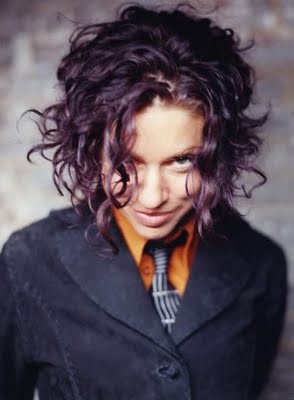
How many of you are here with your same-sex partners, show of hands. Mm. I see several of you are sporting undercut hairstyles, and I think I see at leeeeaaast one pair of suspenders in the back. Don’t be embarrassed, they’re lovely. Everyone please take a moment to look around the room and note the abundance of queer and queer-allied persons. This is no coincidence. Have you ever stood in line for an Ani show? Probably half the lesbians in your town were there. Probably before you even went inside somebody said to somebody, “Omg she’s here; she’s here with her new girlfriend kill me DON’T LOOK SHE’LL KNOW WE’RE TALKING ABOUT HER fuck I hope we don’t end up standing next to them.” Which brings us to the focus of today’s meeting: Ani’s Gayest Songs.
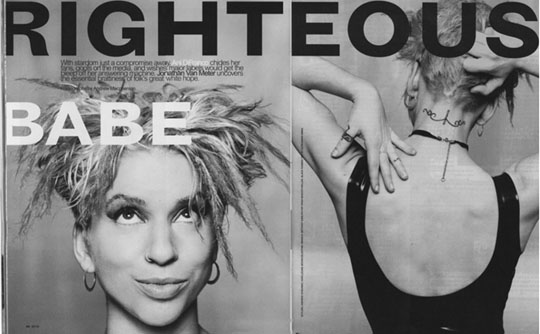
What’s interesting is that Ani doesn’t have that many “gay” songs, you know? She references being with girls on just a handful of songs released in the early and mid-90s, which isn’t very much considering her vast repertoire.
But, as we’ve mentioned before, Ani writes about love/relationships/emotions the way nobody else can, so people of all orientations can relate to her music. She’s also always been a champion for fringe-y types – feminists, queers, lefties, activists, DIYers, artists, shit-disturbers – so it makes sense that she has a huge gay following. We love her because she gets us. She also wrote “I am thinking of her fingers as I walk” in like 1991 and cemented lesbian attendance at her shows for the rest of her life.
And here we are all today. Talking about Ani being Gay!![]()
She Says (Not So Soft, 1991 / Like I Said, 1993)
BUY ON ITUNES
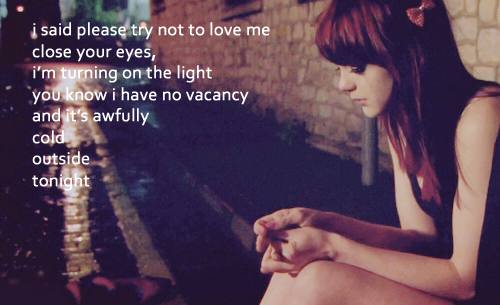
Riese: It’s sad when you know a person could love the fuck out of your stupid shit and you just can’t. Maybe someday, maybe somehow you’ll be ready to be LOVED BY A LADY but just not now while my insides are so effed.
bcw: Everytime it rains in the city I get this song in my head. Even the guitar sounds like rain falling.
Please try not to love me. You know I have no vacancy.
![]()
In or Out (Imperfectly, 1992)
BUY ON ITUNES
Riese: This song was the epigraph for that book I never finished writing about bisexuality. The lyrics give you permission to be pissed off that somebody wants to put you up on any shelf, and I liked that she was independent and came alone/left by herself. Like it was ANI FIRST and LABELS SECOND. I feel this song would be an excellent anthem for the YOU DO YOU movement.
bcw: Imperfectly is arguably Ani’s gayest record, and was the first record of hers I ever heard. This record made me realize I was gay, there is no doubt about it. And ‘In or Out’ was the song that did it, probably because it occurs early on the album. But I also identified as bi when I first came out, and I don’t know, to my 15-year-old self, the lines about stripes and spots and not ordering the same thing at the restaurant were like, life-altering. I immediately learned how to play it on acoustic guitar and did so constantly in front of the mirror in my bedroom.
![]()
The Whole Night (Not So Soft, 1991)
BUY ON ITUNES
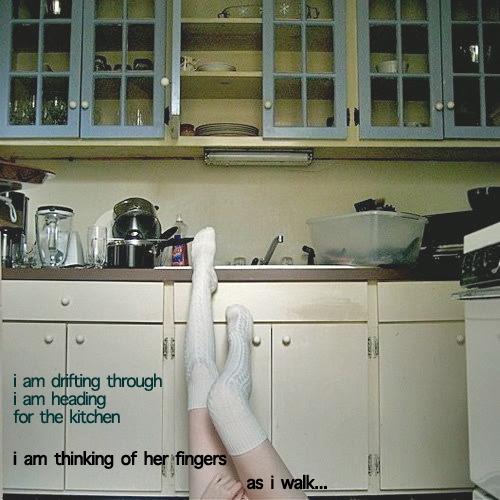
bcw: I was never suuuuper into this song, honestly. I found it a bit cheesy, and it always annoyed me the way she sang “the who-o-ole niiiiight.” It’s cute though. It’s a cute song. People like it. It’s about girls kissing and thinking about each other’s fingers.
Riese: “The Whole Night” is a story of heartache and yearning and impossible desire but the song sounds plucky & happy & free and the language is so light, too. It’s hopeful/scheming. It planted lyrics in my head but they didn’t “flower,” so to speak, ’til maybe a decade later.
I literally feel like I wrote this song. Like, word-for-word. I have held hands like paper dolls, we have tried each other on in the privacy within New York City’s walls, and we’ve kissed our girl cheeks and we went home thinking what it would be like if she or I did not have a boyfriend and we could spend the whole night.
Also, I am thinking of her fingers as I walk — thank you Ani DiFranco for writing that line, god bless you.
![]()
Little Plastic Castle (Little Plastic Castle, 1998)
BUY ON ITUNES
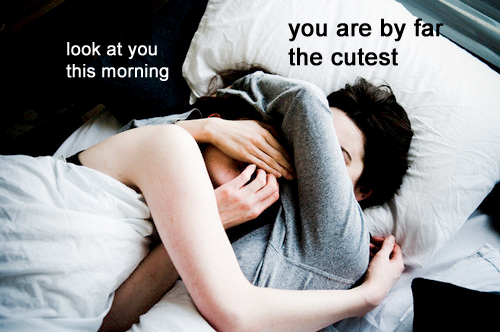
bcw: This song meant so much to me not only because it marked a musical departure for her that blew my tiny mind, but also because of that line about that girl being the cutest. This song makes me think of sunbeams breaking in and early morning road trip coffee and frosty windshields. It has a pretty fun little bassline, too. I think this incarnation of her band – with Andy Stochansky and Sara Lee – is still my favourite.
riese: This is gay because there’s that part where they go into the coffee shop and despite how fucking cute your girlfriend is, you can’t kiss her because you might possible be among ‘phobes. You never know.
bcw: Also it has that GIRL POLICE line that we’ll probably address in another post. This song has everything. It’s a good-time song.
riese: “AA Club #4: ani difranco is trying to break your attitude about her outfits/lovers”
![]()
If It Isn’t Her (Imperfectly, 1992)
BUY ON ITUNES
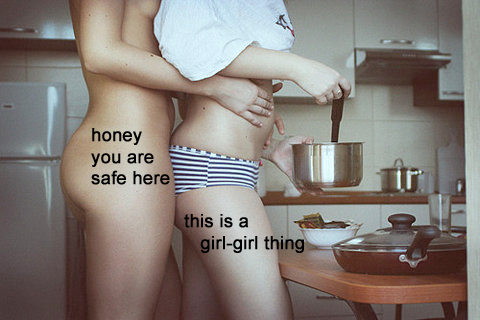
Riese: I have playlists, folders, emails, everything —> titled “a girl-girl thing.” If I ever get married/commitmentceremonied, I want “this is a girl-girl thing” to be on my wedding invitations instead of the word “wedding.”
You’re going to throw stones at me and desecrate my website for saying this — but IN MY EXPERIENCE, falling in love with a girl has a special feeling to it that falling in love with a guy doesn’t quite match. It’s not even a gay thing, I think heterosexual men feel the same way. Because girls are so giant and complicated and tangled up in these heart-shaped soft bits of desire and mystery and wanting and stuff. And then there’s nothing else in the world but Her, you know?
bcw: God this record was gay. I listened to this album non-stop on my SONY DISCMAN (I couldn’t afford that fancy anti-skip Panasonic Shockwave) on the OC Transpo to and from high school for what feels like a year but was probably a period of two months or so circa 1998. I didn’t listen to any other albums at that time, just Imperfectly. I have vivid memories of staring out the bus window at that big hill at Hurdman station, listening to her sing about it being a girl-girl thing and feeling like my whole self made sense suddenly but was also still a super-scary secret that only Ani understood. I always loved the line “my imagination is rattling its cage.” Imperfectly changed my life, it really did.
![]()
Shameless (Dilate, 1996)
BUY ON ITUNES
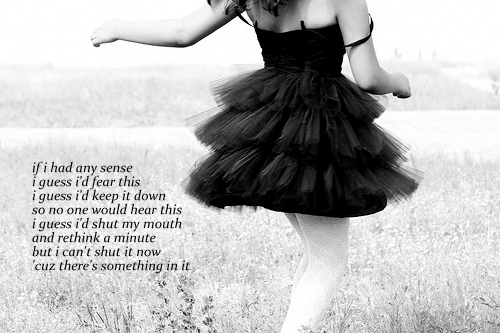
Riese: I don’t know what I said last time, but I can’t say anything about this song without saying everything. TOO MANY FEELINGS
bcw: We covered this song at our first meeting, but it’s her Big Gay Anthem so we can’t exclude it. How do you get into a room if it doesn’t have a door? Unresolved. No but seriously I read this “Unauthorized Biography” of Ani DiFranco at one point many years ago (I’m pretty sure I’m the only person on planet Earth who has read this) and she talked about how one day, early on, she looked out at the crowd and it was all babydykes with shaved heads and overalls and she was like, ‘How did this happen?’ and then I think she started playing ‘Shameless’ less at shows? I don’t know but I always felt a bit weird about that, like why did it matter that it was all lesbians. Did anybody else read that book or am I for real the only one.
![]()
Two Little Girls (Little Plastic Castle, 1998)
BUY ON ITUNES
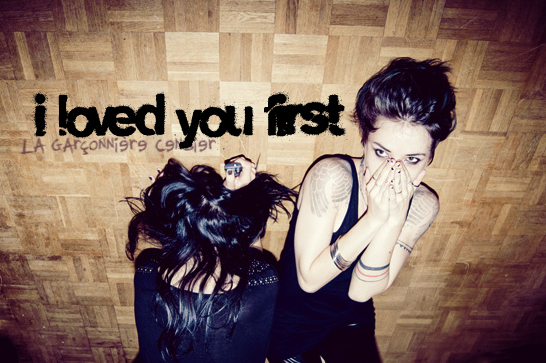
Riese: This experience is just making me realize how often I’ve co-opted Ani lyrics for email subject headers, blog titles and (once upon a time) myspace headlines. From this song I snatched (har) “this little girl breaks furniture/this little girl breaks laws.”
You’re the one who knows what’s up, who knows who she is/was and what she needs, the parts of her that the other girl co-opted for herself and pumped with drugs/destruction and you’re the one who will be there to call 911 and you’re the one who lightens the mood with your jokes or furrows your brow — you are all of these things, effortlessly, and you feel confused as to why the world isn’t paying you back for being all those things.
bcw: I want to hear what Rachel has to say about this song because at our first meeting she implied she had a lot of feelings. Rachel, you have the floor.
![]()
Both Hands (Ani DiFranco, 1990 / Like I Said, 1993)
BUY ON ITUNES
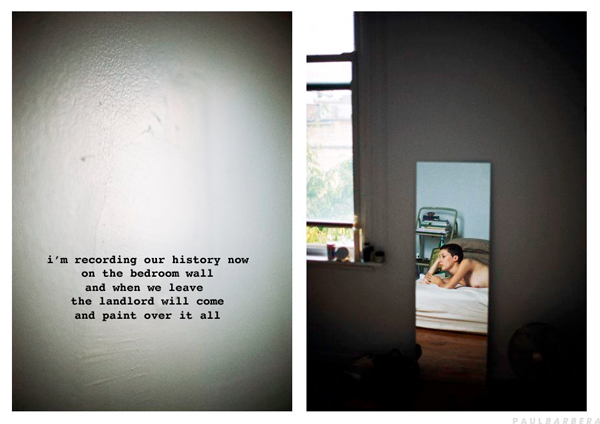
bcw: I think this song is pretty gay. Riese doesn’t. Not that it’s about a girl necessarily, but ‘gay’ in the sense that it’s beloved by gays. I don’t know, it’s one of Ani’s many, MANY, it-could-be-about-anything-because-it’s-about-feelings songs but I challenge you to find me a lesbian guitarist who doesn’t know how to play this. BOTH HANDS NOW USE BOTH HANDS. Gay.
Riese: I would actually say that the sexuality of this song is fluid. I would say it is going with the flow. Because when I first heard this song I was watching a male chest rise and fall and now I watch a female chest rise and fall. It’s bisexual, just like Ani DiFranco. Also you may or may not be able to email me at iusebothhands at gmail dot com, but I definitely won’t write back.
bcw: It has universal gay straight bi queerio queer queer weirdo feelingsy appeal just like Ani and it can be ‘claimed’ only insofar as we all claim each other.
Riese: Ultimately in the end all we really have are our big gay feelings and our handsy acoustic guitars.
![]()
What are your thoughts? Did we miss anything super important to your gay self-actualization? Are you SO INSULTED by something in this post? Tell us all your gay feelings about Ani in the comments!
Ani DiFranco Appreciation Club Meeting #2: Ani DiFranco Is Trying to Break Your Heart
Ani DiFranco Appreciation Club is an all-inclusive, safe space devoted to the appreciation and discussion of Ani DiFranco’s music. Meetings are open to anyone with a love of Ani DiFranco; new members welcome. Please sign the attendance sheet in the comments. We also encourage everyone to buy Ani’s music and not download it illegally, please.
Ani DiFranco is trying to break your heart. Actually, she’s probably already succeeded a bunch of times, which is why you’re here. Because that’s what’s so special about Ani’s music: although she’s never been popular in the mainstream or gained much radio play, she’s cultivated legions of fans through the raw power of her lyrics and her ability to write something so heart-wrenchingly true to your own experience that it makes you feel like SHE KNOWS YOU.
It’s that deep connection, that feeling of relating so completely that makes our love for her so deep and red.
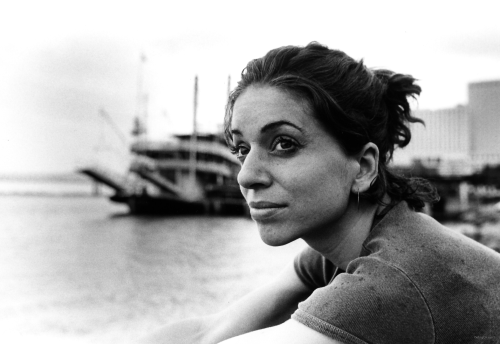
Ani DiFranco Appreciation Club Meeting #1: Now More Than Ever
by riese & bcw
We’re gonna talk about Ani DiFranco for a quick minute here.
Lesbians tend to have a lot of feelings about Ani DiFranco. Lots and lots of feelings. I’m having about six different feelings right now just writing this.
This is the first of what will be a multi-part feature devoted to the examination and appreciation of one Angela Maria DiFranco and her exhaustive contribution to the world of music and capital-F feelings.
You see, here at Autostraddle, some of us have a very deep, passionate love for Ani DiFranco and we know that some of you do, too. In fact, we (Riese and bcw) have so much love for Ani DiFranco that we can no longer do her justice via private conversations. We all need a little Ani-infused group therapy. A place to talk about how Dilate ripped our hearts out or how Imperfectly made us gay. A space reserved for us to collectively wonder what the hell she was thinking when she recorded that song “Swing” and if “Revelling” is about friendship or a love affair or both.
And you know what? If you don’t like or “get” Ani Difranco, that’s fine. But this is an Ani DiFranco APPRECIATION Club, not an Ani DiFranco Haters Club. Keep that in mind, commenters.
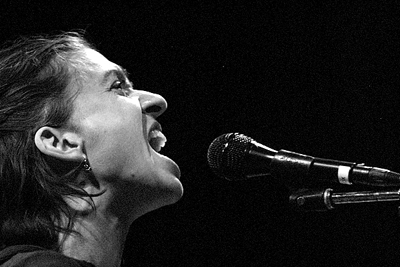
Because I’m gonna say something right now and I’m only gonna say it once: I am SO OVER lesbians (and other people) saying that they’re SO OVER Ani DiFranco. I get it, I do – many of us have gone through an Ani-discovery phase wherein we listened to her music ad nauseum and identified with every perfectly-chosen metaphor that she employed.
“She’s Ani Fucking DiFranco. Show some respect. She started her own record company (at 19, I might add) and has churned out an album a year for the last 500 years, plus side projects.”
Most of us have probably at some point felt at least somewhat stripped bare by her uncanny ability to put into words exactly what it is we’re feeling, better than we ever could, (making us go, “I never heard it put that way,” making us say, “what did you just say?”) and maybe now we’re not exactly there anymore. We can’t be tormented fifteen-year-old baby dykes forever, after all.
But dammit, she’s Ani Fucking DiFranco. Show some respect. She started her own record company (at 19, I might add) and has churned out an album a year for the last 500 years, plus side projects. She told Letterman she’d only do his show on the condition that she could play “Subdivision” and refused the invite when they told her no. She INVENTED THE PIANO KEY NECKTIE, for crying out loud. Okay not that last one. But she was there – with her weirdly-long right-hand fingernails, her shorn/colored/dreaded/wavy/shorn/wavy hair, her too-many double live albums, her impossibly-titled Up Up Up Up Up Up, her Andy Stochanskys and her Julie Wolfs and her Todd Sickafooses and her Maceo Parkers, her enough-already jazzy jam band phase post-To The Teeth, and her HUGE ASS BALLS – right when you needed her. And she’s still there today.
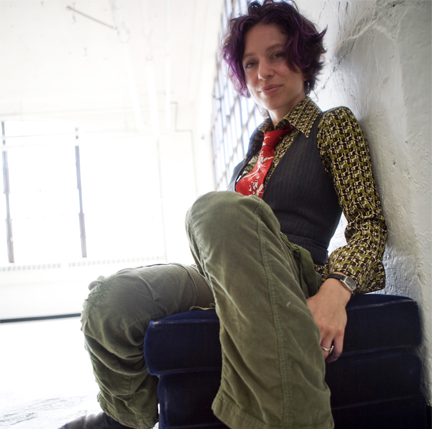
For some of us, Ani’s music has shaped who we are; changed the way we write, the way we think, the way we sing along, the way we lose love and the ways we get it back. We love her with the burning fire of a thousand suns and nobody can tell us otherwise. AND WE WANT YOU TO LOVE HER TOO. Because you’re worth it.
To kick things off — and to maybe get a few of you on board who are scratching your heads right now — we’re going to give you a quick rundown of some songs that just about everybody knows and/or loves. The bare essentials, if you will (and trust, we had a really hard time paring this list down). These are the songs that, if you don’t know them yet, you should probably hear before you try and hit on that cute girl with the dreads or the nose ring. Your mom has probably heard at least one of these songs. Get with the program. We love you, we want you to be better.
(Editor’s note: we wanted to link to the original album recordings of songs and in some cases the accompanying videos are a little bit random/awesome. Enjoy.)
32 Flavors (Not a Pretty Girl, 1995)
buy on itunes
bcw: I first heard this song covered by Alana Davis on the first release of the unfortunately-titled Canadian compilation album series “Women and Songs.” I thought it was brilliant, and when I read in the liner notes that it was actually Ani’s (and heard her much-better version) I fell in love.
Riese: I literally cannot listen to this song without thinking about Baskin-Robbins. All I hear is “Fuck you Baskin Robbins, where’s my Feminist Flava,” over & over again. The Alana Davis cover gave me vadge-rage for months because people said they loved it and I said YOU SHOULD SAVE YOUR LOVE FOR ANI.
You Had Time (Out of Range, 1994)
buy on itunes
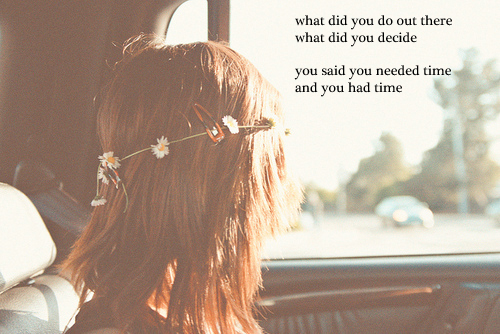
Riese: Back in 2000, Fox aired a fantastic, critically adored yet short-lived documentary series called American High. The producers gave video cameras to ~15 high school students in suburban Chicago and it was so authentic and perfect and revelatory and honest that it obviously got canceled mid-season. The point is that I’d always liked this song, but when Ally drove home in her junky car listening to “You Had Time” on her car radio, probs from a mix tape — literally GOING HOME WITH NOTHING TO SAY AT THE TIME — it wedged itself under my ribs and is my “most played” Ani song on itunes. It’s how “artists” feel going home. Right?
bcw: Not sure what needs to be said here, other than GAAAHHHHHHHHCRYCRYCRY and don’t bother watching Lost and Delirious because it sucks (but was filmed at Bishops!)
Untouchable Face (Dilate, 1996)
buy on itunes
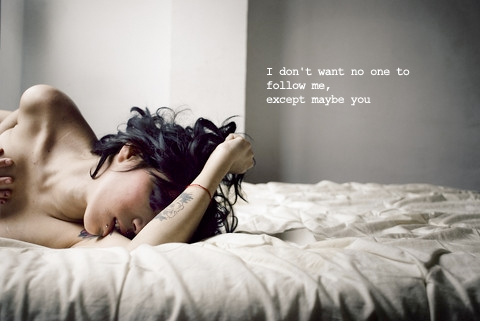
bcw: Who hasn’t been there? Anyone? Really? You’re lying. The only thing I can think of saying is “fuck you.”
Riese: That’s what she said. Also: yes. Everyone knows this one.
Both Hands (Like I Said, 1994)
buy on itunes
Riese: Remember when Kim who everyone had a crush on played Both Hands at our arts boarding school’s open mic night and she introduced it by saying it was Ani DiFranco’s best song and therefore it became Ani DiFranco’s best song? That was hot.
bcw: Remember when she had the Buffalo Symphony accompany her on this song? On like Living in Clip? I thought that must’ve been so weird for the musicians. But also like, holy crap, she’s got a SYMPHONY with her. Respect.
Shameless (Dilate, 1996)
buy on itunes
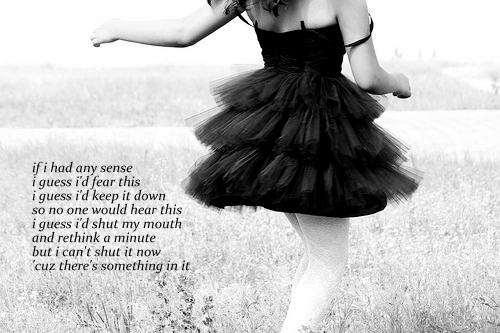
bcw: This is arguably the official Ani DiFranco queer girl anthem (though there are many – more on that later). I say this because I think I remember hearing an obscure live recording of this once and hearing all the dykes in the crowd cheer when she said the word “wife.” If you are a lesbian and you have not heard this song, stop everything you’re doing and listen to it right now. And think about that neighbor’s wife you’re coveting / coveted when there was too much drama.
Riese: I actually think the fact that it’s another “man’s” wife is incidental and it’s just about the velocity of an unstoppable sex/like thing with a person you can’t/shouldn’t “have” because they are taken but you’ve moved past “wrong/right” “explaining” “naming” or “shaming” into “they are going to be mad at us” because there is absolutely no fucking way you can stop THIS.
Back in the day, I had “we’re in a room without a door” as my “headline” on myspace and someone posted on my wall “then how did you get in?”
Regardless, listen to it right now and think about that neighbor’s wife you’re coveting.
(ETA: Now that I am listening to it as a “lesbian anthem,” I realize that bcw is probs totally right but I don’t care, that’s the beauty of Ani.)
Gravel (Little Plastic Castle, 1998)
buy on itunes
bcw: See, I’ve always thought this song was about a woman, but that’s probably because I was going through a big Indigo Girls phase at the time I first heard it. I don’t know, I just always imagined a middle-aged butch on her motorcycle pulling up to Ani’s house. I guess it’s probably not about a woman, which really doesn’t matter anyway. This song is about loving/hating/hating loving someone; I think a lot of us have been there / are there. Full disclosure: I used to play it in coffeehouses.
Riese: I like it when Ani gets angry about being sad/powerless, it gives you a reason to scream instead of cry or something.
Little Plastic Castle (Little Plastic Castle, 1998)
buy on itunes
Riese: Little Plastic Castle was the first Ani album I bought in a store the day it came out, as I’d been catching up for most years prior. Whenever you people yell at me in the comments, I want to yell SOMEONE CALL THE GIRL POLICE AND FILE A REPORT.
bcw: I used to wake up to this song every morning one summer when I was 16 years old, working in the kitchen at a summer camp. I thought the lines about the girl with the shaved head being the cutest and about the competition to see who could be the rudest and about the girl police were pretty much perfect, and it was the first time I heard her employ brass instruments in her music. When I heard that I remember thinking, “imagine what else she’s going to come up with.”
Riese: If someone ever says “look at you this morning, you are by far the cutest” to you, then you should probably kiss them right then and there. Or later, if the people might want to shoot you.
Not A Pretty Girl (Not A Pretty Girl, 1995)
buy on itunes
Riese: This was like, mid-90’s, driving in your stickshift beat-up second-hand Volvo, intentionally looking as ‘not pretty’ as you can via the wonders of mid-90’s “alternative” culture/style and smoking American Spirits and feeling like you can beat people up. But now it’s a whole new song to me as a grown-up “working artist” — “generally my generation wouldn’t be caught dead working for the man, but trouble is you gotta have yourself an alternate plan”? Word.
bcw: This song was, in some ways, one of my first feminist anthems. “Imagine you’re a girl just trying to finally come clean / Knowing full well they’d prefer you were dirty and smiling?” I mean come ON. That whole album is amazing – I think one of her all-around strongest. I can still put that album on today and let it play all the way through without feeling compelled to skip a track. Well maybe “The Million You Never Made” if I’m in mixed company.
Dilate (Dilate, 1996)
Riese: These lyrics are hands down totes the most apt description of a certain feeling than anything else ever written in the history of mankind and the English language AND I WILL THEREFORE PASTE SOME OF THE BEST LINES RIGHT HERE:
You are so lame
you always disappoint me
it’s kinda like our running joke
but it’s really not funny
I see you and I’m so unsatisfied
I see you and I dilate….
so i’ll walk the plank and i’ll jump with a smile
if i’m gonna go down
i’m gonna do it with style
and you won’t see me surrender
you won’t hear me confess
‘cuz you’ve left me with nothing
but i’ve worked with less
and i learn every room long enough
to make it to the door
and then i hear it click shut behind me
and every key works differently
i forget every time
and the forgetting defines me
that’s what defines me
when i say you sucked my brain out
the english translation
is i am in love with you
and it is no fun
If I had a penny for every time I thought “I just want you to live up to the image of you I create” I would be a bajillionaire. BAJILLIONS I TELL YOU.
bcw: It took me a little while to fully appreciate the beauty of the “sucked my brain out” line but once I got there, hoooo. The first few bars of this song always hit me like a punch to the solar plexus. Sometimes I have to skip it because shit gets too real.
![]()
Keep in mind, these are just songs that we personally think count among/are perceived as the “classics” – they’re not necessarily our all-time favorites.
We’ve got at least 5-10 more Ani Appreciation Club posts planned on a variety of topics, so sit tight. There will be juice and cookies next time!
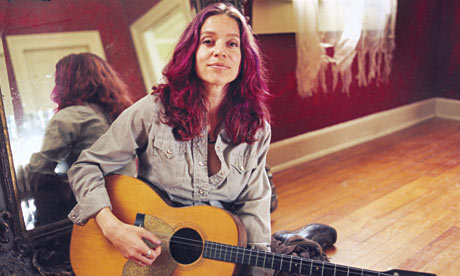
Margaret Cho Knows Lesbians are Funnier, Records “Camel Toe” with Ani
We have so much to catch up on since the Internet beat us to death on Saturday, Sunday and Monday! Here we go…
MARGARET CHO:
Margaret Cho says lesbians make better comedians. This is true.
What has the stand-up comedy world been like for women, in your experience?
I think the comedy community is not supportive to women in comedy. It’s just not a supportive environment. It’s interesting; a lot of women who are successful in comedy are lesbians. Or they have a fluid kind of gender identity, like I do. I am very fluid in that capacity. [Cho has had relationships with both men and women. She is currently married to a man.] But you can’t really be a successful female comic if you give a s**t what guys think at all. So a lot of heterosexual women end up dropping out because they just care too much about what guys think. I think that’s why there’s always lesbians who take over because they don’t care. It’s just an element to their personalities that helps them get by. That’s the closet explanation I can see. The women comedians that are out there generally are gay. The community itself is not supportive to women, and so you don’t have it on the inside and you don’t have any kind of building or a connection. It’s just hard.
Do you think there are some topics women can make funny in a way that men can’t?
I think that’s everything. I generally prefer female comics anyway. I think that women are just better at it in general because we have to be better at it to survive and to be taken seriously. You have to be so good to get noticed as a female comic, so the quality of the art, what they’re doing, is just better.
We couldn’t possibly agree more! I wanted to add that black comedians are also funnier than other people (for example my favorite comedians are Chris Rock & Julie Goldman), but Alex Vega told me I wasn’t allowed to say that. Alex Vega thinks thinks Margaret Cho can say what she wants about lesbians because she’s bisexual, but I can’t say what I want about black comedians because I’m not black, to which I pointed out that I have a black half-brother (this is true) (Alex Vega doesn’t think that really matters, is probs right), and then Crystal said she just learned from reading about the Miley Cyrus/Perez Hilton debacle that “if you stick the word ‘allegedly’ in your article at least ten times you are not accountable for anything.” So I would just like to add that I personally feel that in addition to lesbians being funnier, black comedians are allegedly also funnier than other people. ALLEGEDLY. According to my personal opinion.
Anyhoosers, why are these groups of people allegedly funnier than other people? Well, in his book about TEH GOLDEN AGE OF COMEDY, someone named Nachman said this about Jewish comedians (I’m Jewish so I can say whatevs I want on this, bitches!):
… the link between Jews and comedy has been pondered as often as the meaning of life itself, but Nachman has a pet theory as to why so many great comics have been Jewish. “They’re funnier,” he says. Beyond that, Nachman adds, “it has to do with ‘outsiderness,’ being the observer. There’s a critical nature Jews have, and you have to have that to be a comedian. But I don’t know where funniness comes from.”
So that applies here as well. Otherness.
Furthermore, Margaret Cho has recorded a musical album with just about everyone who makes us cream in our pants, and speaking of our pants, she actually recorded a song called “Camel Toe” with Ani DiFranco. Doesn’t that sound like a dream you had last night? “OMG, last night I dreamed that Margaret Cho and Ani DiFranco recorded a song together about camel toe, isn’t that so weird?” So weird, yes, but also REAL LIFE!
Tell me about Cho Dependent, the album of songs that you recorded.
My album is a comedy album, a bunch of collaborations with different musicians that I’m fond of. It’s people like Ani DiFranco, Tegan and Sarah [sic], Andrew Bird, Jon Brion, Grant Lee Phillips and Fiona Apple. So it’s comedy songs. I think most musicians want to be comedians and most comedians want to be musicians, so it’s a good exchange.
JANE LYNCH:
Lesbian Jane Lynch and some other funny ladies, including Lesbian Wanda Sykes, gathered to discuss important topics. Take a gander.
PEREZ HILTON:
If an adult were to send out an up-skirt photo of a 17-year old girl to over 2 million people, should said adult be charged for child porn? What about if that adult is Perez Hilton and the 17-year-old girl is Miley Cyrus and it all went down on twitter? Perez allegedly tweeted a link to an image that allegedly showed Miley climbing out of a vehicle that was allegedly a car with allegedly no underwear on, and even though now the alleged image has allegedly been removed, if this is all for real and not just an allegation, then Perez could maybe be facing up to 15 years in prison because Miley’s a minor, and so it is legally considered child pornography. Somebody get on that. (@salon)
THE TONY AWARDS: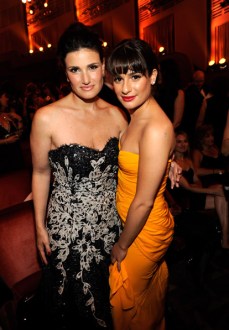
Sunday night’s Tony Awards, hosted by Sean Hayes, was super gay as per ushe, but also this year it was super Hollywood, as Hollywood people won for every category in which they were nominated. This included Catherine Zeta-Jones for “A Little Night Music,” and Denzel Washington and Viola Davis for best actor/actress in Best Play Revival “Fences” (by August Wilson). Scarlett Johansson won for best featured actress in a play for her Broadway debut in Arthur Miller’s “View from a Bridge.” Best Musical went to “Memphis,” and British Production “Red” took best play, as well as five other Tonys. Also, it was the first time in Tony history that black performers won best actor and best actress in a play for the same theater season. Holler.
In a nod to the the Homophobic Newsweek Article we obsessed over for many many weeks, host Sean Hayes and Promises Promises co-star Krisitin Chenoweth opened the awards show with Kristin offering Sean good luck and then exchanging what The New York Times described as “a long, open-mouthed kiss.”
Here’s the opening number, which ends with Green Day’s American Idiot:
Lea Michelle and Matt Morrison performing:
LADY GAGA:
The Illuminati has spoken! Lady Gaga’s Alejandro video, as analyzed by the expert on occult mind control and the only Lady Gaga expert better than our own.
KATY PERRY:
Katy Perry denies slamming Lady Gaga:
“Lately, I’ve just been seeing some things that are kind of… not something I would do, I guess,” Perry — who grew up with strict religious parents, both ministers — explained during an interview with a French radio station Sunday.
“Like, you know when Madonna was on the cross? And, like, sometimes my boyfriend will say things that are ehhh…” she said, referring to fiance Russell Brand. “From where I come from, it’s hard for me to say that….”
THE REAL L WORDS:
Ilene Chaiken is back where she likes to be, on stages in front of lots of lesbians! There are also large posters of the cast of The Real L Word. This is really exciting, I can’t wait.
ELLEN DEGENERES:
Ellen DeGeneres is writing her third book! (@nytimes)

